#hnk analysis
Explore tagged Tumblr posts
Text
Moon Phos' hyperrationality and self-sabotage, and why it's a paradoxical step into happiness.
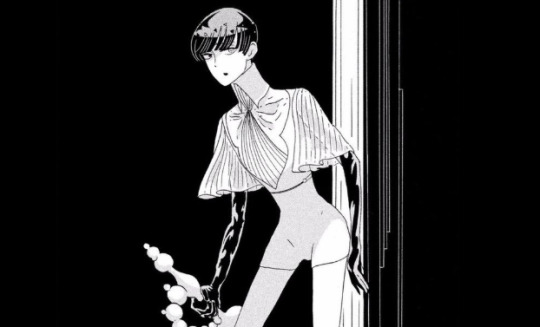
Or, basically, a Moon Phos analysis.
I think this part of the manga is genius, both thematically and for Phos' original character, because it goes against everything she used to represent, and it showcases both the dangers and strengths of reason, and how isolating it can be.
OG Phos vs Moon Phos
While OG Phos used to be a lot more present-focused and someone who took things at face value, that also made her capable of reaching out in a very honest and genuine way to people like Cinnabar, who was too caught up in her mind and insecurities to see an escape for her situation. Phos used to be someone who was able to enjoy the moment, and the simple things that come with it, whether it was the butterflies, the amazing views, or her own cute mint-colored hair.

I'd argue this way of experimenting life is what HnK argues to be the key to happiness: that existence is what you make of it, and Phos was content as she was, but everyone around her pushed her to become something else, to the point that she absorbed those frustrations and lost sight of her way of living.
What corrupts Phos isn't that she acquires new body parts; that's just an extreme metaphor for what changing would look like if our soul also experimented physical change—it's all about how she loses sight of the simple happiness she could have experimented on her own (and along with Cinnabar, if she reached out to her), in favor of increasingly more complicated goals. (Moon Phos is the extreme version of this.)
Phos' corruption into overthinking doesn't come out of nowhere, though and it starts to manifest strongly the moment she loses herself in the stress and burden of losing Antarc in Winter. Phos does retain some of her groundedness as post-Winter Phos, but she also starts to think more, to question more things and to brute-force her way into change, with disasterous results.

When she realizes this, she makes the right call by trying to stop, but it's too late by then—she had already stared at the abyss, and the world wouldn't let her forget all that she had learnt.
When Phos loses her head, now she has all the tools she needed to generate change and innovation—to look at the big picture and avoid getting caught up on the little things... and that's her demise.
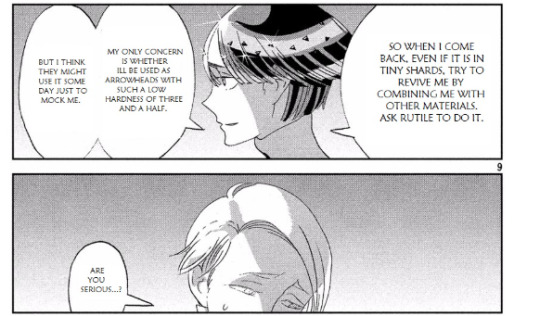
Because in comparison with OG Phos, who looks at the present, Moon Phos is someone who always looks forward. Someone who always uses reason as her greatest weapon, in order to manipulate others while losing sight of many important details (some related to her own well-being and that of others) in favor of big, complicated plans in which everyone's feelings, even her own, are just pawns in her game.
Cairngorm explicitly warns her about this, saying that she hasn't valued those at her side (Cairngorm herself, or Cinnabar) as much as she should, and that's why she's become such a lonely individual.

Moon Phos is someone who lives in her head, in the world of ideas and the abstract, while OG Phos was the complete opposite, and the change in approach has a direct impact on her happiness, as she loses sight of the simple things in favor of objectives that just don't translate into happiness as well as she thinks she does. Moon Phos optimizes, but loses the essence of happiness that she could have achieved in a simple manner by focusing too much on "what should be" rather than "what it is".
To put it succintly, Moon Phos is brute-forcing her way into being accepted, into bringing change for her people, losing all the tact that was needed for a moment as life-changing as a pact with the lunarians could be for the gems. And if OG Phos had something that Moon Phos didn't, was that ability to look at things in a simple way that would have avoided such a mess in the first place.
By talking about both of them, I think it's clear that each have their strength and weaknesses, and that's why talking about Phos is so difficult. Because even if she lost many of the good things that made her who she was, she also gained many others that brought "prosperity" for the gems. Prosperity in quotations because later, we'll see that the optimization didn't really bring many benefits.
Whatever the case, in order to truly understand the strengths and weaknesses of Moon Phos, we need to analyze her sacrificial role in the story according to the themes of buddhism in it.
The Bodhisattva
A sacrificial figure in Buddhism, and that Phos, especially Moon Phos, represents to a T.
But why? Well, one of the fundamental characteristics that the Bodhisattva represents is that they work towards enlightenment in order to save others, being a kind of Buddha in training. The problem here is that sometimes, saving others requires for the Bodhisattva to sacrifice their own happiness and enlightenment.
Phos becomes the opposite of the teachings of buddhism. Hyperrational, manipulative, working towards her own desires and masking them as altruism. (because we all know Phos didn't do everything she did for the gems, she did it for their validation and to be acknoledged by them). And yet, the contradictory part of it is that it was necessary for everyone's enlightenment, but most important of all, for Phos to be given the chance to be happy, away from a world that pushed her to be rational.
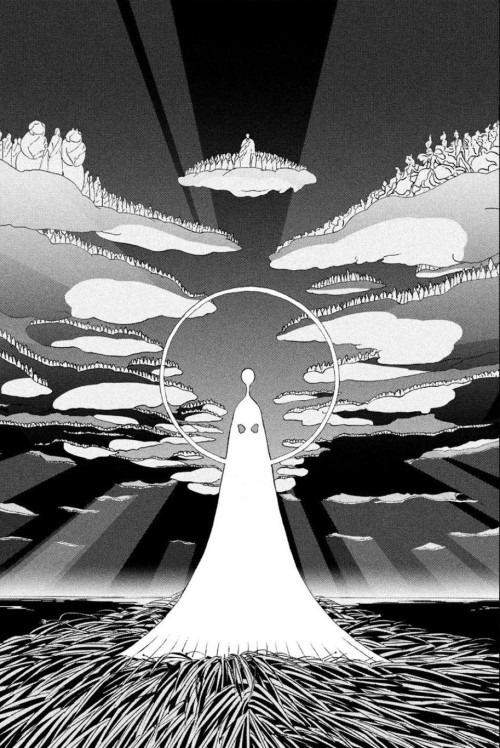
Buddhism has this constant theme of paradox in it. The paradox that in order to reach happiness, you must let go of happiness. The paradox that in order to realize that you must focus on the present and stop thinking, Buddha had to spend years thinking about it. And Phos is a living paradox, in the sense that her hyperrationality and look into the future and big picture was needed for everyone to reach happiness, at her own expense. She was played a fool by everyone, and it's even implied that Kongo was on it, all because she was the one most attached to her earthly desires of them all, to the point of changing every part of herself in order to accomodate to what she thought others wanted her to be.
In a way, Moon Phos (and the lunarians, because it's no coincidence that the "lunarian" Phos is the one that represents these themes) doubles as a criticism of our present capitalist society as a whole, with all its hyperrationality and big-picture focus that allowed for progress and suffering alike, always at the expense of oneself. Because we're our own slaves, and we work ourselves to death to reach a happiness that is further and further away from us due to those same efforts (paradoxically). All Phos wanted at first was to be loved by those around her, but she chased that dream with such relentlessness that she ended up casting away the parts of her that made her loveable and losing the people that would have been able to connect with her. And yet at the same time, Moon Phos (and the lunarians, the rationality, Ayumu herself) paved the way for God Phos' chance at happiness at the end of the story.
A Paradox
Thus, to the question of how to live in society and be happy, Houseki no Kuni poses that the answer is balance, or perhaps, a paradox. It showcases the ugly but necessary aspects of humanity, and the reality that every time you gain something, you lose something else, through Phos and her loss of body parts that benefitted society at her expense. Thus, there is no right extreme, and no goal that can be achieved by just rigidly doing the same thing.
Whether you look at the enlightenment buddhism promises you (as showcased by the way of living of the gems, simple but without meaning and creating resentment between everyone, with a literal buddhist monk as its leader), or the prosperity that civilization achieves (as showcased by the lunarians, who corrupt and surround themselves with earthly pleasures to distract themselves from their problems), both have their strong points and weaknesses and seem paradoxically necessary to reach one another, to ultimately work towards the goal of enjoying existence, as it is, unabashedly.
The gems truly found happiness on the moon due to finally allowing them to be themselves, and eventually, all the lunarians (including the gems, who turned into ones by virtue of corrupting themselves with the eartly pleasures), reached enlightenment by letting go of those desires. Of course, if you analyze it more, it was a "fake" kind of salvation, and only Phos reached true happiness in her God form (expanding more on it on another post), but at least they got to enjoy more of their life than they would have if they had continued in the endless cycle they were put in (or the "samsara").
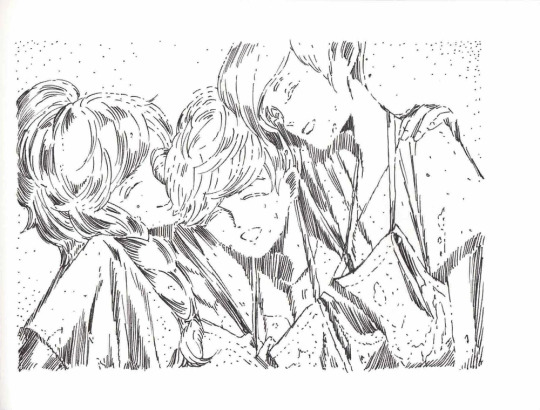
In the end, Phos had to gain the rationality that characterizes present-day humanity in order to save everyone, while at the same time, condemning herself. Because for all their short-sightedness, destruction and cruelty, humans are also kind and wise, and they allowed the rocks to live just that little bit more by escaping the sun in chapter 106. Both the optimization and the relaxation and appreciation of little things are necessary in order to become happy, and we need to find the balance in the different aspects of ourselves in order to do so.

As Phos herself says at the end of the manga, despite it all, she is grateful. Because no matter how she got there, every step of her journey was necessary to make her who she is—and that's how it is for everyone. Experiences mold us, they change us, we can't force change and we certainly can't predict where it'll take us... and that's the paradox. Because sometimes, working towards the result we desire leads us astray from it, and viceversa. Phos was someone who had her eyes set on a goal, one that she didn't want to admit: the goal to be admired and loved by everyone.
And in the end, she had no one.
Moon Phos was necessary, but she took it to an extreme and burnt herself up along the way. Thankfully, she was granted a second chance by the very same flawed people (Kongo, Aechmea, Ayumu) that made her into a sacrificial lamb for their own selfishness.
A chance she took to finally accept that no matter what she did, there was no predicting life or changing yourself to an "optimal" version of yourself, so she might as well enjoy the ride.
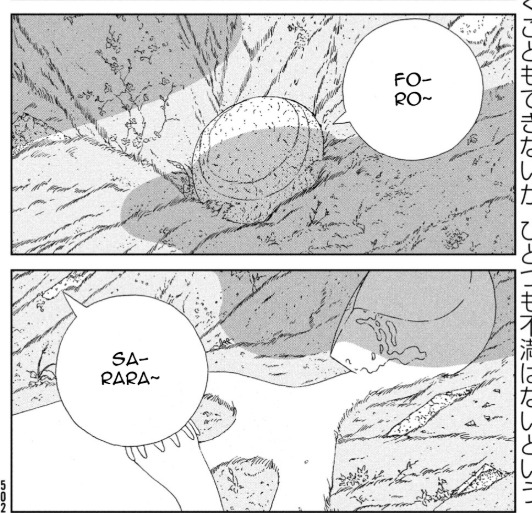
#houseki no kuni#land of the lustrous#phosphophyllite#moon phos#hnk phos#hnk#hnk meta#phos#lotl#hnk manga#buddhism#hnk analysis#hnkkathmeta
128 notes
·
View notes
Text
Houseki no Kuni Chapter 107 Thoughts: Goodnight, Sweet Phos...
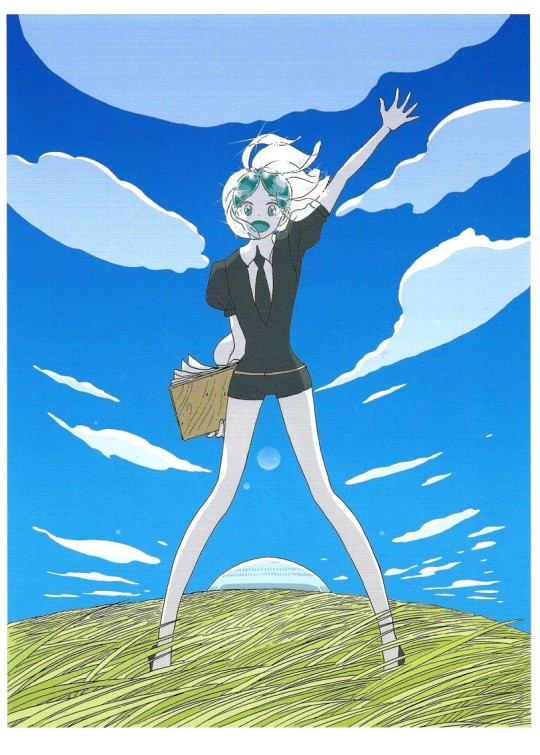
Hello everyone! Sorry for the delay with this post. I originally intended to finish it and post it on Wednesday, but you know.... life happened.
Another month has gone by and now we're on our second to last chapter for Houseki no Kuni. That's right; it's been confirmed that the next chapter will be the last chapter. Can you believe it? If you've seen my previous posts, I'm sure you have an idea of how I feel about this news.
But that'll be for the end of this post. For now, let's talk about this chapter! I don't know how long this one will be, but I'll still warn you that it might be longer than intended, which is the norm for me. This post is a bit too messy for my liking so I might end up making some edits to it later. For now, I just want to have it posted.
As always, please feel free to share your own thoughts in this post! Here we go!
Visual Storytelling Through Change in Style
The first thing I want to talk about is the visuals for this chapter. It greatly contrast with the visual style of the previous couple of chapters. In those chapters, the art was loud, intense, and chaotic, and yet mesmerizing and immersive. The heavy use of black, sharp lines and patterns emphasizes on the harshness of the changing environment. And in many of those page, Phos looks so small, as they are literally being consumed by their surroundings. Even though there were many panels where Phos, Eyeball, or the pebbles are the focus, the background is still very overwhelming in comparison.
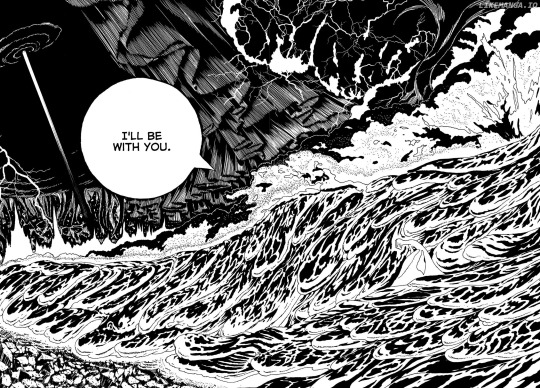
Now contrast that with most of the visuals in this chapter. Most, if not all, of the intense visual motifs from the previous chapters are gone; no sharp patterns, black is subdued significantly, and the background isn't overpowering the characters.
The intensity of the visuals were cut back significantly and were traded in for simplified line art, heavy use of the white negative space, and soft hues that make everything airy and dream-like. This is especially true during Phos's sequence. I like how there are very few thick continuous lines in the artwork. These illustrations are mostly made up of light, loose broken up short lines that create abstract structures. And I like that as the regression continued, Phos's design simplified to the point that they were just a small abstract face.
This art style literally and metaphorically showed us the deconstruction of Phos. It's so simple, and yet so impactful.
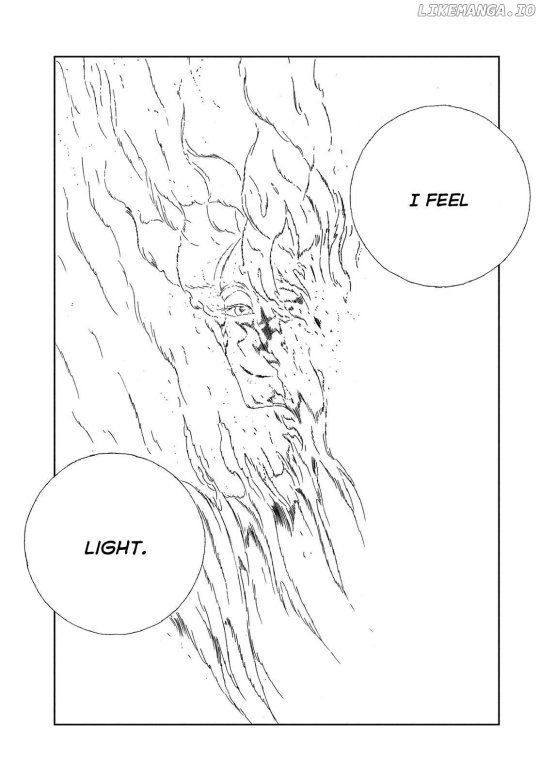
This is also the case for the last two pages.
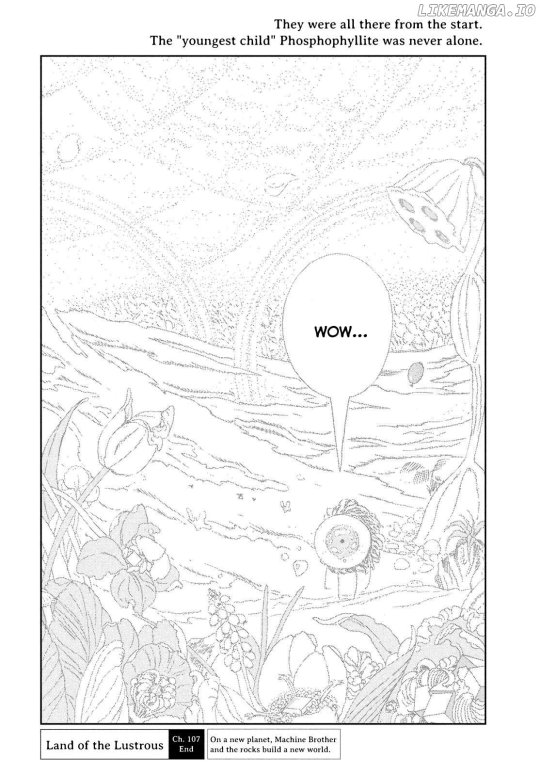
The change in visual tone does a nice job emphasizing the literal and figuratively change in scenery. To be more specific, the drastic art style changes can symbolize the final metamorphosis of the remaining characters and the story itself. With Eyeball and the pebbles, the style emphasizes how they've transitioned to a whole new place in a literal and allegorical sense. And with Phos, they're style does the same by emphasizing on the deconstruction of their being during their final moments.
I apologize if what I said was confusing (I also got myself confused for a moment haha) But I'll just end this section with this: I liked the art in this chapter.
Now then, we should jump into the meat of this chapter....
Phos's final curtain call.
Phos Can Finally Rest...
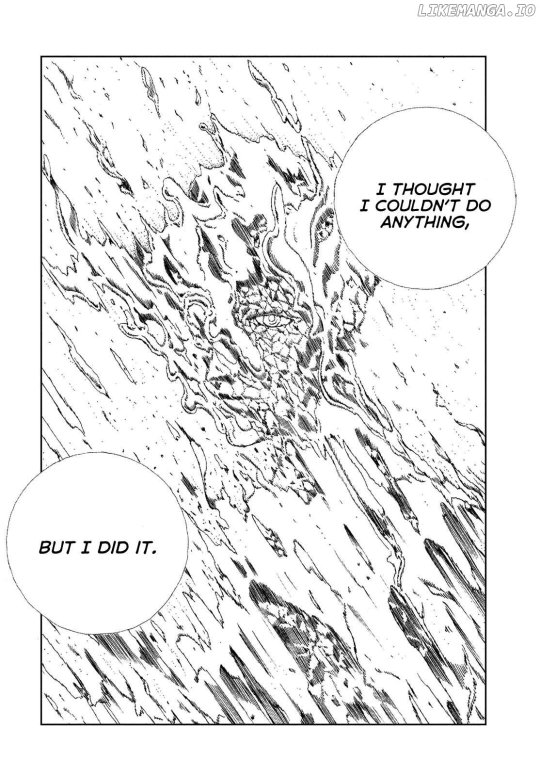
Like I stated before, I found Phos's pages really beautiful for different reasons. In terms of visuals, it's nice seeing some softer imagery after having nothing but sharp, chaotic ones. And story wise, it's nice to see Phos finally letting go and feeling fulfilled.

They are finally free, for real this time. Free from heartache, pain, existing. Phos is no longer held back by the sorrow they had been carrying, and they are free of regret.

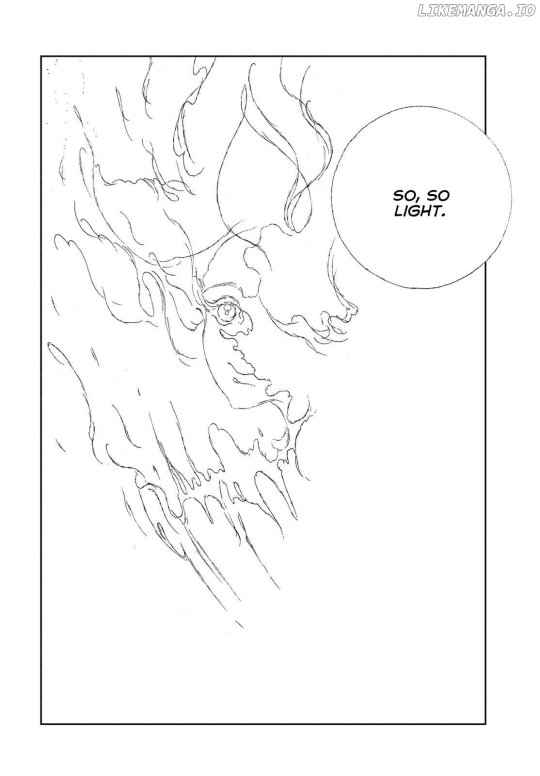
They are finally at peace.
And would you look at that? We got to see Pho's original face one last time. And they were happy.
Good for them.
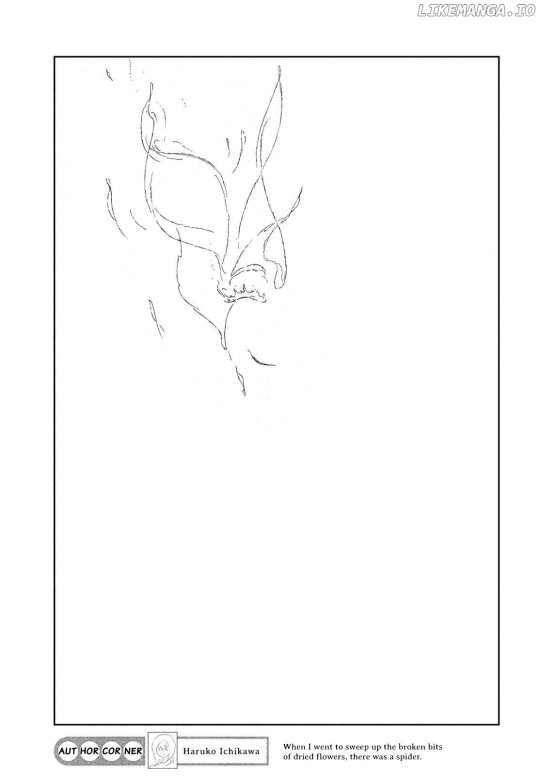
Before going to the next section, I want to quickly talk about this page:
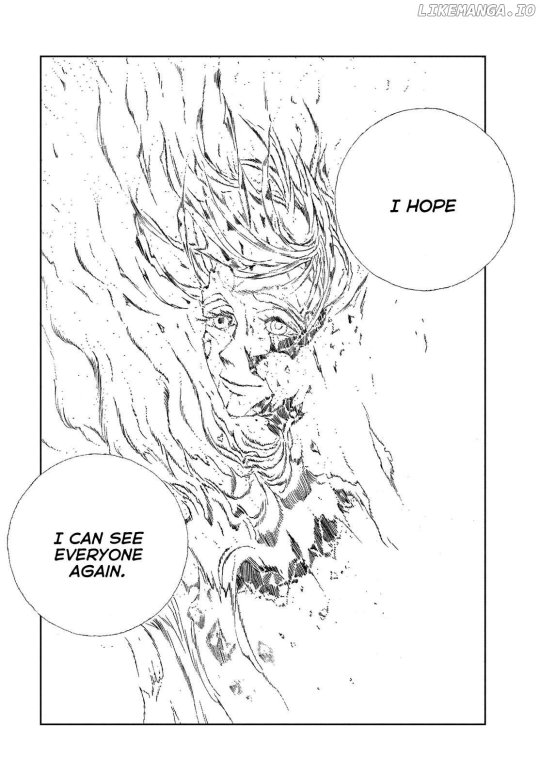
When I first looked through the spoiler tag for the previous couple of chapters, I remember seeing some posts from people who seemed unsatisfied with how the story progressed. From what I understand, many of them didn't like that Phos decided to forgive the remnants of humanity. With this latest chapter, I'm sure there are fans who were also not happy that during Phos's final moments that they are thinking about wanting to see their old families again. I can understand the sentiment, though I'm not surprised with this development.
Despite everything that had led the story to this point, Phos did not hate their old families. Yes, they harbored malice towards them during different points of the story, and it would have been justifiable for Phos to punish them along with the other remnants of humanity came to them to pray. But instead, Phos chose to forgive and free them.
I originally saw Phos's actions as their way of finally cutting ties with their families and relieving themselves of the emotional baggage that they burdened them with. But it's been hinted for a while that despite everything, Phos still loved their families. And the fact that Phos wishes they could see them again solidifies this fact.
Though I can't say if I like this revelation or not, I still find it interesting. But again, I can understand if some readers disagree with Ichikawa's writing decisions. If you have your own thoughts about Phos's final moments, please feel free to share them!
But regardless of everything, I still think this was a wonderfully fitting send off for Phos.
But I'm not done talking about Phos just yet.
And Start Anew...
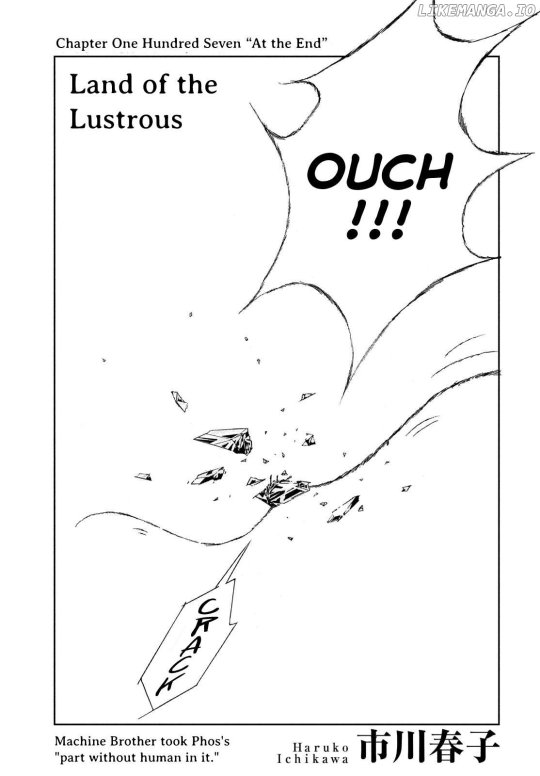
I'll admit that having the first image I see be Phos's last gem piece shatter was not the welcoming image I wanted to see. For a moment, I thought my hope that there was a chance the small piece of Phos would grow sentience and live a new life was shattered (haha.)
But hooray, for that theory became a reality! Despite Phos's last piece breaking up again, a small bit remained and is evidently showing signs of life. It was wonderful how the pebbles immediately recognized that small piece as their brother, showing once again how open and welcoming their are. Small Phos is so lucky.
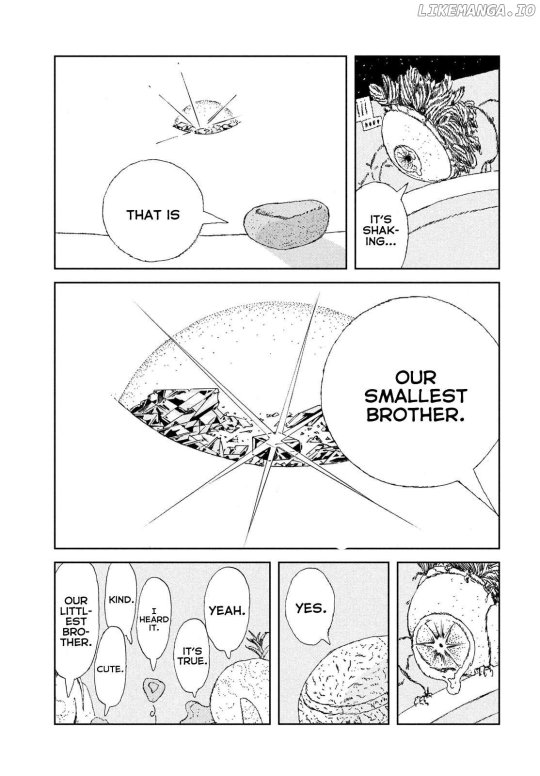
And how ironic is it that this Small Phos is considered the smallest, (in some ways) youngest, and most fragile new member of this new family... much like how Phos was with the gems at the beginning of this whole story. (I know that Phos was the same height as the other gems, but because of their makeup and position within their society, Phos can be considered less significant or "smaller" than everyone else)
Hm. With that thought in the air... I hope the parallels end there and this doesn't mean that this small and untainted piece of Phos won't be subjected to a similar treatment of their predecessor, right?
...right??
Nah, it should be fine....Unless Aechmea somehow comes back-
Created Their New Path: Final Act of Defiance?
The second to last thing I'd like to talk about is this page because it had me thinking about few things.
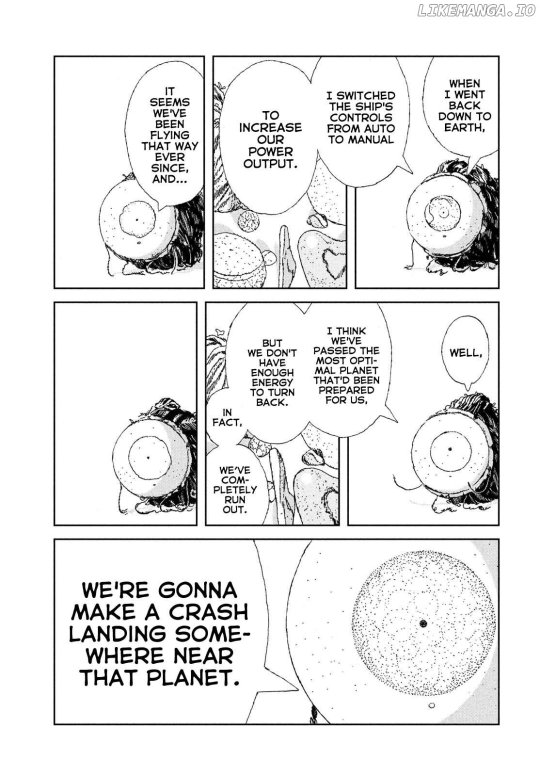
It made me think back to the previous chapters, namely the crazy, nearly perfect plans perpetuated by Aechmea and the Lunarians. It's been emphasized many times how calculated Aechmea's plans were, especially when it came to Phos. He nearly predicted every action Phos would make and kept planning and manipulating accordingly until things go the way he wants. And in the previous chapter, it was also heavily implied that he and the other remnants of humanity counted on Phos, Eyeball, and whatever new organisms they came across, to get onto the Dues Ex Machina ship. In some way, they predicted correctly.
But now I must ask these questions:
Did they also count on the possibility of Phos not entering the ship?
Did they also count on Eyeball switching off the ship's autopilot, manually controlling it, and subsequently crash landing it on a planet that more than likely wasn't the original destination?
For these questions, I want to say no.
It's interesting how even though at this point in the story, both Eyeball and Phos seemed resigned to the fact all of their actions were a result of them being manipulated, even after the perpetrators were long gone. But funny enough, I think that their very last actions were entirely their choice. For Phos, staying on the planet and ceasing to exist was entirely their choice. And for Eyeball, choosing to meddle with the ships settings to grab Phos's last gem piece and boost the ships' output. I don't think Aechmea counted on Eyeball doing that. If Eyeball is correct and they did pass the planet that Aechmea had possibly prepared for them, then this means that Eyeball had in many ways changed the trajectory of his and the pebble's lives, albeit unintentional. This could all mean that are all finally free from Aechmea and his long-game, 4D chess plans.
Phos and Eyeball have finally and truly defied Aechmea and humanity.
...BUT THEN AGAIN.. there's always that dumb chance that this was ALSO somehow part of Aechmea's plan. I highly doubt it, because that would be very ridiculously convoluted, even for this story. But then again, you never know with this author.
But for the sake of this post, I want to believe Phos and Eyeball came out on top in the end by intentionally and unintentionally forging paths that wasn't previously made for them. Even though Phos's final choice was somewhat influenced by the professor, it still felt like it was truly their decision.
I hope this doesn't unravel somehow with the final chapter.
Speaking of which-
The Final Stretch...
I can't believe it. This story is about to end. We'll finally almost done and what a journey it has been. I can't believe I started getting into this series almost over 6 years ago. Many things have happened since then, and during this time, this story had sent me on such an emotional rollercoaster. Though there are many things within the story that I wish was different or handled better, I still think this was a very wonderful and thought provoking story.
Now Ms. Ichikawa has to stick the landing. This could make or break this series.
After everything you put us readers through, I hope the true finale will be worth it.
#houseki no kuni#land of the lustrous#hnk#hnk spoilers#hnk phos#hnk spoiler#lotl#hnk meta#lotl spoilers#hnk analysis#hnk chapter 107#hnk phosphophyllite#hnk manga#hnk thoughts#story analysis
70 notes
·
View notes
Text
Euclase and Motivation Boredom
It may feel awkward for this post to be based off of a source based in Western philosophy knowing the series' Buddhist influences, but the former's concise terminology helps illuminate the series without any evident conflicts. Conveniently, I have only needed to base this thread off of one article: "Immortality and Boredom" by John Martin Fischer and Benjamin Mitchell-Yellin.
If one believes that immortality necessarily causes boredom, Fischer and Mitchell-Yellin have observed two notable ways in which one could make this argument. One way, coined as "content-boredom", argues that immortality would eventually exhaust the supposed finite amount of desires that would drive a person to live (Fischer and Mitchell-Yellin 355). This is partially shown through the Lunarians. Their desire to pass on stems from the resignation that they have done everything that could bring any sort of pleasure. The Lunarian's problems regarding immortality do not stem from content-boredom, for there is a more existential component present, but it is a real factor. Content-boredom is limited to the Lunarians, for they, outside of Kongo, have lived much longer than anyone else.
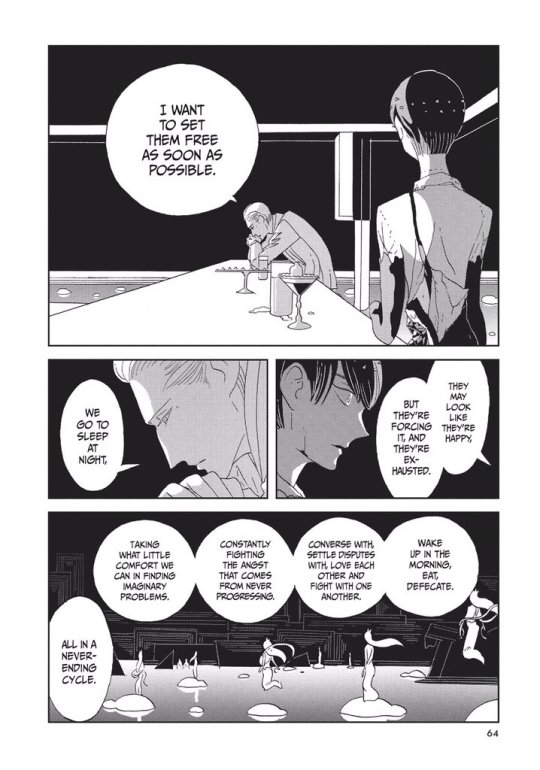

The other way to argue immortality that causes boredom is to say that an immortal life would not be constrained by time, and, therefore, lack a certain urgency. Lacking the energy to actualize one's desires and complete projects would make life dull. This is labeled as "motivation-boredom" (361). While perhaps not as intuitive argument as content-boredom, motivation-boredom is an application of the common practice of procrastination at its most extreme. Where one may put off a task until the last possible moment despite wanting and knowing that they should have started that task earlier, people who support the idea of motivation-boredom believe people can and will put off everything indefinitely since there is no last possible moment. Motivation-boredom is best substantiated through the Earth Gems, but most importantly, through Euclase, an elder gem who displays more apparent control over the Earth Gems as the series progresses. Showing how this is the case is what the real substance of this post is.
First of all, Euclase's role in demonstrating motivation-boredom is something only Euclase can properly do. The other elder gems (i.e. Yellow Diamond, Padparadscha, and Alexandrite), are caught in problems regarding immortality that are outside of boredom. The same reasoning applies to Kongo.
Ironically, they acknowledge the idea that immortal existence fundamentally differs from mortals in a psychological sense, but they (through their own admission) ultimately seem unaware of how motivation-boredom affects their judgments. Before any budding criticism comes to mind in how the previous tweet is phrased, Euclase does only mention that an immortal being's sense of danger being distorted—not necessarily an immortal being's sense of urgency being distorted. However, the following paragraphs should demonstrate the compatibility and sometimes interchangeability between the two traits. Euclase's distorted sense of danger is actually rooted in Euclase's distorted sense of urgency.
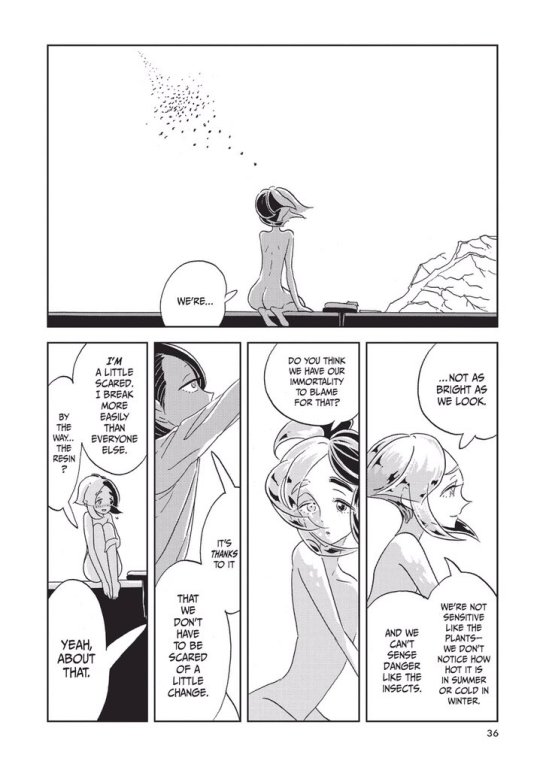
Relative to other gems in the series, Euclase's conversations take a lot of focus on temporality. There are many examples. In fact, Chapter 4, their first major appearance, foreshadows this tendency. The third image shows a juxtaposition between Euclase and Phos in valuing time.
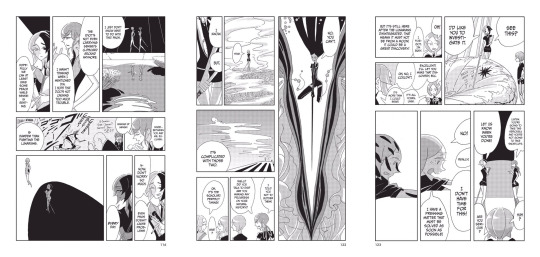
Another example early in the series (one in which credit goes to Shamu, for he pointed this out during our note-taking process of this video) takes place during Chapter 7 when Jade reports that Euclase dropped their schedule and is in need of more time to reassign roles for the future. The reason is indirectly linked to Phos, which hints at how Phos will impact Euclase’s future.

Euclase, contrasting from the Lunarians, values the benefits that come from the lack of urgency. With infinite time comes the infinite opportunities for conflicts to resolve. The earliest moments where this sentiment shows itself is through Chapter 41 and Chapter 58.
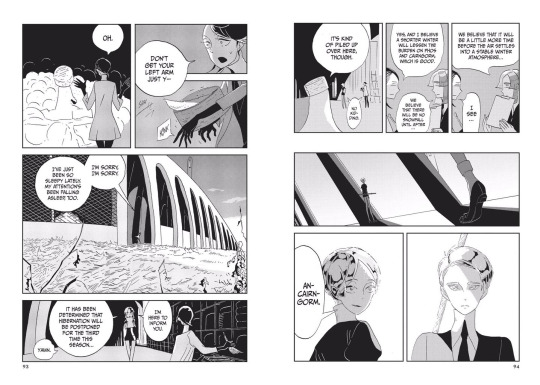
While a bit digressive for this post, Euclase's word choice incorporates time once more to compliment Phos' condition by returning from the moon in Chapter 58. There is an irony here in that Euclase's support for the idea that a lack of urgency eventually will towards positive outcomes through patience is vindicated through Phos. Euclase's encouragement to Phos could have only happened through the systemic neglect that Phos is under.

Chapters 60 and 61 display where motivation-boredom's consequences start to directly impact the plot. Euclase recognizes the threat Phos poses but fails to enact any action outside of sharing their suspicion to Jade and expressing an ambiguous threat towards Phos. Euclase failure here stems from two reasons. One is that Euclase misreads the identity of Phos. Lapis is a gem known for their analysis paralysis. Euclase, by believing Lapis has the most control over LaPhos, assumes that Phos would not follow through any plans with such haste. Furthermore, by predicting their actions through the Lapis-colored lens, they fail to consider what would happen if really is Phos in control, a gem that carries human-like tendencies to carry out tasks with an urgency.

The second reason originates from Euclase's inability to detect time constraints. Notice the juxtaposition between Euclase and Phos here: the threat not only fails to prevents the gems departing for the moon but actually hastens the result.

Even though Euclase manages to prevent a few gems from leaving the moon, it's a pyrrhic victory, suggesting once more how Euclase's inability to feel urgency causes negative results. Consider Rutile, whom Euclase successfully prevents from going to the moon. Rutile could have served as a pivotal piece in preventing the departure to the moon, for they were the only one to consider disseminating Phos’ plan to Kongo. Instead, Rutile’s psyche starts to take a turn for the worse in the series. Euclase’s failure here is multilayered.
Euclase starts to recognize urgency more due to Phos. Kongo's pending request for a self-imposed exile forces Euclase into action. Why Euclase feels compulsion to stay on Earth is slightly outside the scope of this post, but Euclase's argument for staying on Earth lies in identity and its connection to time. Note that Euclase's urge to make up each other's shortcomings results from Phos' actions as well as Kongo's response being tied to the relationship future life forms and the present day.
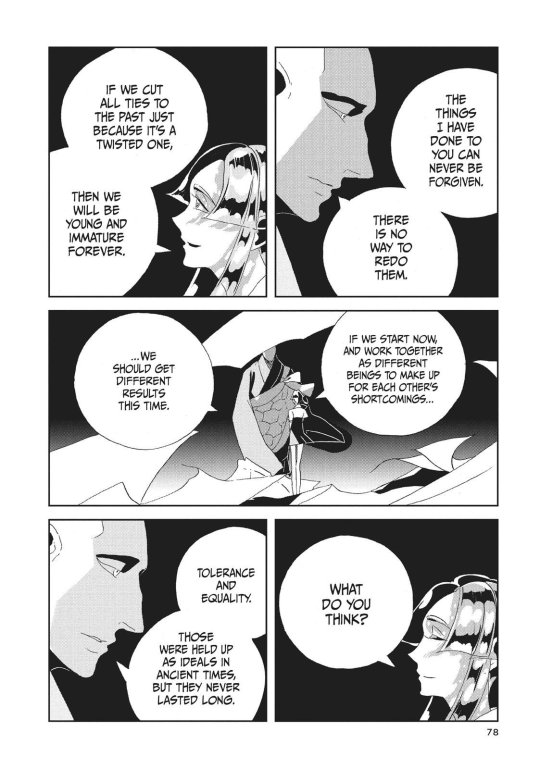
The scouting mission in Chapter 69 implies that Euclase's natural state is one that tries to maintain a state that avoids urgency when they can. Pad's analysis, considering their constant state of inactivity, suggests that Euclase's character has been unchanging for a while. The threat of Phos does urge Euclase and the Earth gems to respond with a defensive plan, however, as seen in Chapter 70. The following interaction between Phos and Euclase centers once more on time.

Euclase's decision for everyone to rest after the night raid lies upon the premise that relationship between Phos and the Lunarians is currently one of dysfunction. Urgency to act only comes when the danger is immediate and the time constraints are evident for Euclase.
When Phos is separated for 220 years, Euclase once again approaches the problem under the assumption that the amount of time to solve all the conflicts with Phos is not constrained by time. The following chapter shows Euclase's belief that Phos no longer endangers their safety; the small amount of motivation they have to ask Kongo to pray is caused not out of sympathy for Phos but instead of out consideration of the possibility that that Lunarians might invade.
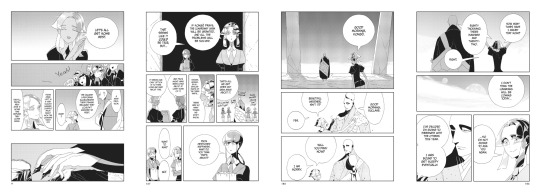
While Euclase's reasoning to delay cleaning up during Kongo's birthday party may have justifiable reasoning, it does show how motivation-boredom even plays a part in casual situations.

Upon recognizing danger from Phos' imminent invasion, Euclase's response is to buy time, which seems rather indicative that their response to urgency is infinitely delay whatever causes urgency.

Through Alexandrite's action sequence, due to the positioning of Euclase at the start of the sequence compared to the other images, it almost seems as if Euclase is trying to delay inevitable danger by using their companions to buy time.
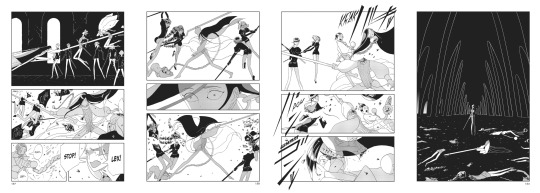
Based on Euclase's previous actions, their reasoning for their negotiation plea towards Phos expresses sincerity. However, as time has proven before, Phos shows that they need to be the danger in order for goals and desires to be reached. Euclase's shortcomings show that becoming immortal does not mean everything can be put off until later.
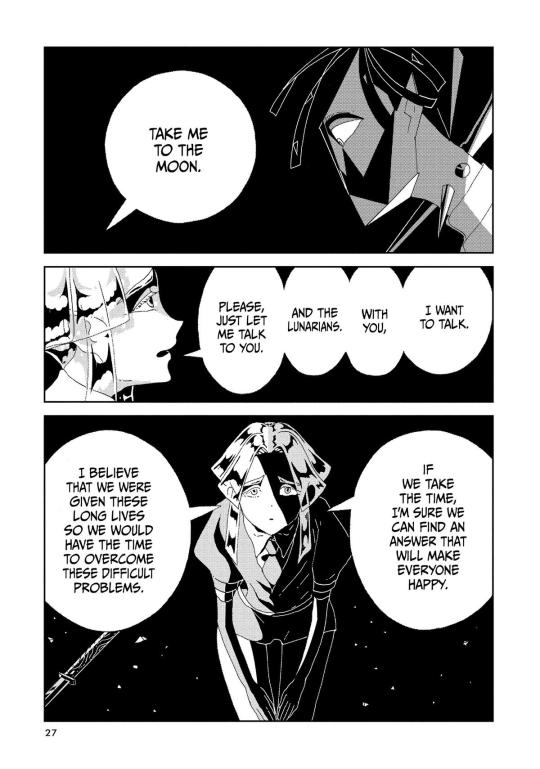
When wondering why Euclase fails to get anything done later in the series, a serious factor to consider is the influence of motivation-boredom. Euclase's passivity may not be entirely based on intentional callousness, for their existence and their relation to time distorts all decision making, and living as they have distances themselves from a perspective like Phos' and reinforces those distortions.
To wrap everything up, Houseki no Kuni frequently criticizes immortality. Does the depiction of both kinds of boredom claim are aspects that necessarily happen to those who have immortality? No. In a sense the two types of boredoms oppose one another, yet they coexist in this story. However, having these two kinds of boredoms correspond to a respective immortal species shows how these criticisms could happen to those who are immortal. Additionally, unlike content-boredom within Houseki no Kuni, motivation-boredom does not directly lead to unhappiness for reasons concerning the lack of energy to fulfill desires like its supporters suggest. Instead, the manga shows that those in power who lack urgency due to their immortality can lead to excessive and idle conservatism and eventual, destructive consequences by not recognizing and responding to time-sensitive issues. To me, that sounds more like a warning rather than a criticism.
The paper summarizes both types of boredoms, but interestingly, they reject these two concepts as sufficient reasons to oppose immortality. Originally, before making this post, I did not think either forms of boredoms had any merit, but analyzing Euclase has shown me that immortality would, while not necessarily causing motivation-boredom, a distortion of urgency within projects that would require it, thereby risking to harm one's quality of living. Furthermore, for supporters of content-boredom, reading "The Makropulos case: reflections on the tedium of immortality" by Bernard Williams may interest you. For supporters of motivation-boredom, I cannot say I have read them, but Fischer and Mitchell-Yellin's response on content boredom is based off of Todd May's "Death" and Martha Nussbaum's "The Therapy of Desire".
Fischer, John Martin, and Benjamin Mitchell-Yellin. “Immortality and Boredom.” The Journal of Ethics, vol. 18, no. 4, 2014, pp. 353–72. JSTOR, http://www.jstor.org/stable/43895884.
#euclase#land of the lustrous#hnk#phosphophyllite#kongo sensei#houseki no kuni#rutile#hnk meta#motivation boredom#hnk analysis#i doubt it's really analysis but it's close enough for those interested in the tag
80 notes
·
View notes
Text
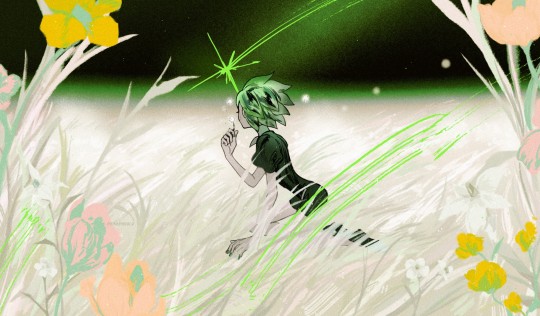
a lifetime of happiness
**hnk ch 108 spoilers**
Can't believe it's already been a month since Houseki no Kuni ended... It's been a ride leading up to the finale but I finished the series with tears welling up in my eyes, and a sense of peace. 😭
The ending was hopeful and meaningful— an unexpectedly lovely conclusion for Phos! 🤧 I love the visual metaphor of Phos and the gems being reborn into "The Pure Land", or known as, The Land of the Lustrous, a purified paradise free of materialism and earthly temptations. These delicate gem flowers holding tiny, unique universes, will be eternally brightened by Phos' radiant existence. With the possibility of other universes, I hope that Phos and the others will meet again and lead more fulfilling lives together!! 🛌💭
The way my jaw dropped realizing Ichikawa ended the last chapter on number 108, the Buddhist symbol of overcoming worldly desires and embracing new beginnings to attain nirvana. SO good...😦 The parallel between big brother and Phos, both on self-destructive, morally ambiguous paths for their loved ones/ideals, was a compelling twist. I love them both... 😢 As Aechmea and Adamant hoped, big brother passed on knowing he helped Phos find happiness. 😭 Wailing...
This series has profoundly impacted me more than I imagined, shaping my perspectives on my own values and the world. Despite it coming to an end, we will always stay connected across time and space, just like Phos!!! 🥺🤍
Thank you, Haruko Ichikawa, for creating such a memorable piece of work, and to everyone who has liked my hnk art and commentaries throughout the years! I'll continue loving and drawing the series for as long as I can. 🙇
#housekinokuni#land of the lustrous#hnk#it was the best possible ending for phos and i love how beautifully depicted the closing chapter was T_T#treasuring it in my heart forever!!!#hnk 108#hnk spoilers#thanks to anyone who follows my other platforms and rereads the same caption lol!#i'd like to eventually compile an more complex analysis now that the series is finished!! maybe after i reread everything <:)#pemprika
1K notes
·
View notes
Text
it’s really interesting especially when comparing the lustrous to the lunarians to see how little the lustrous understand about “human” society. What i mean by that is on the moon there’s entertainment (idols like dia), science (like amythyst), mental health awareness (like yellow dia), and even…. ‘love’ (like cairn…if we can even call it that lol) but what I mean is that the lustrous have no concept of any of these things. They have emotions but they don’t recognize what the feelings are. Like Cinnabar was lonely and sad which is obvious to us but I doubt Cinnabar ever realized what they were feeling by name. They knew something was wrong, and they wanted something to change but they never sought that until Phos. Phos is actually such a complex character in that they live in a society that doesn’t understand them, meaning that they don’t understand themselves either. I can’t help but feeling like if the lustrous had more concept of the minds complexities that something could’ve been done.
#aaaa idk what i’m saying#js got inspired to make an analysis#hopefully this makes sense#maybe i’m completely wrong idk but yayayaya#land of the lustrous#hnk#lotl#houseki no kuni#phos hnk#lotl phos
38 notes
·
View notes
Text
I can't fucking believe that I haven't talked about Phos on my blog. FUCKING CRIMINAL BEHAVIOR ON MY PART.
The metamorphosis of Phos is so tragic, the downfall and ascension of their being, meaning that, the more they become, the less there is within Phos' body. It reminds me a lot of Kafka's Metamorphosis, not only because Phos was considered useless, and hindrance, and they were hated by a lot of the other jewels or just simply dismissed. While others fought, Phos could only watch, itching to grab a weapon and spear it right into a Moon Soldier's chest.
To prove that Phos can save them too. To prove that they can lean on Phos. To prove that they can love Phos because then, they'll know that Phos is reliable. And not just some jewel prancing around, making an encyclopedia because there is nothing for them to do.
When I compare Samsa to Phos, Phos does the exact opposite. Samsa is unwanted when he loses his value. Phos, gaining value and strength is less unwanted.
Phos, willingly becomes the cockroach, losing parts of themselves to unsalvageable ends, to further enhance themselves, Phos is not only more alienated from the other jewels, but also less wanted. Phos is pulling away from themselves, because they know that they are unwanted being who they are, so the less that Phos looks like Phos, the more they will be loved and useful.
Consciously and as well as from Phos' unconscious self-hatred, they project said disdain from other jewels, and also from Phos themselves by the exchange of their body. Every arc, Phos has new arms, new legs, changing colors and the more they hone themselves to become the better weapon, isolating themselves due to their need of ascension, the trail that is left, is the remains of Phos, losing themselves among the floors and grass.
I don't know if I'm making any sense (if I'm not, sorry), but, I just can't let go of the fact that Phos in their search of becoming a warrior as well, willingly let go of themselves to the point of no return. The point where they finally realized there was no coming back from whatever the had become. Phos was a perfect, smooth and incomprehensible being. But not Phos anymore.
Phos becomes an amalgamation of different foreign materials mixing together, holding each other by a fucking thread, to the point when the story cements that Phos is being forgotten and beyond saving, is when Lapis's head is placed upon Phos's neck.
And it's Lapis, and Phos, Lapis eating Phos slowly, becoming a multifaceted jewel that sometimes is Lapis, and sometimes, Phos.
Their objective is gone off the rails. Being Manipulated, Phos is utilized as a weapon against their own kind, only to find out that everything they have sacrificed themselves to, everything they have lost to the remains of the world, every leg, every arm; every shard of their being has been lost to the unseeming happiness of the other jewels. Frolicking by the grass, rejecting Phos once again.
Phos started being unloved. And ended being unloved. It becomes a full circle of rage, when everything that holds the frankentein creature is unleashed. Anger and rage and sadness projecting into sharp, unknown edges. Losing their shape, the combination of a long suffering mutilation finally crying their loss. And then, they punish Phos. The last patch of dirt in Phos's tightly packed tomb.
Phos, in their constant metamorphosis, their constant change, appearance and state of mind; shed themselves so easily because they thought that the constrictions of their body wouldn't matter to the others once they could protect them. Once Phos stood in front of them and slashed the enemies, wanting every jewel alive. Phos's losing of their self, was because of love. They loved so much that they willingly broke themselves over and over again. Phos put themselves in the fighting ring, but no one was betting in their favor.
No matter what they did; they always ended scorned. Rejected and alone. Punished. Even as the perfect weapon, the other jewels knew how to reduce Phos to a shattered mess. They allowed themselves to move on, and evolve, while Phos, deeply conditioned by the resistant status, was never given a chance.
And now the world is ending around Phos and they just want to die. To he freed from a body. They spent millenia hating their body constantly, never allowed to peacefully living within it. Never taught how to embrace the place and being that held Phos, and who was also Phos. Casted aside from beginning to end, while being consumed; the layers peeled back, slowly burning away to reveal what was inside.
And it was Phos. Smiling, bright, shining Phos. They were always there, hidden among all the layers that they built to not be broken as easily, or to be everlasting. And no one bothered to peer inside, to allow Phos to be uncovered. The only way that Phos died happily, was being out of their body. A body that they never thought was theirs, because Phos believed that it was to belong to the ones they loved. And now, out of it, and into the stars, Phos can be free, but they will never know how much their body was precious. That it was theirs. The loss of unconscious bodily autonomy is so deeply felt along the story, when you shed tears every chapter, because it feels like Phos is never coming back.
But the thing is, that they were still there. It's just that nobody wanted to see. Phos started Phos and became everything the world had to offer. Every piece of material, connections of remnants of things that they happily absorbed.
Maybe in another lifetime, Phos would've been able to learn that they could be themselves. Being loved being Phos. But it's not because in the original world things had to happen that way.
It never should've happened. But the drowning of Phos and their agitated cries for help were not even in the back of other people's minds. Betrayed, from start to finish, Phos never stopped loving. Twisted or otherwise; the atrocities commited were because Phos taught themselves to love, and the farther from themselves the more unknown the concept of love was.
Metamorphosis are used as a glorious reminder of the revealing of the true contents of the being. The shedding of the coccon, to project to the world who is it that its travelling throughout it.
But in Land of the Lustrous, the metamorphosis is being used as the reminder of the loss of oneself. How changing is sometimes just layering more and more, going backwards. Burying ourselves in our own grave, swallowing the key. Sometimes beings change. But others don't need to.
And Phos was left to the shaking, anxious spiral of believing that they had to change. That their body was the coccon. And if they shed it, tear it off with their teeth, cutting it off; maybe it would become Phos. Maybe they weren't even made to the way they were.
To be seen, is to be known. The action of the settling of others eyes is the acknowledgement that you are here, observing the way you laugh, how you move your hands when you talk, how you frown and pull up the forts, how your nose twitches and the gestures when you dislike something lead to the memories and associations, and the questions and the wonder. Thus, you are known.
And if you are seen, and known, then, the understanding leads to the timid extent of them being seen and known. Now that they know you, they want you to see them too. And they buy you the mug you saw at a market, or the necklace you said you liked. They cook the dessert you craved, or fixed a leaking faucet. Hoping that with the extended hand of the offer; you will know them too, and love them too. Spend the rest of your lives figuring each other out. Seeing, knowing, loving. Engraving yourselves in each other's minds.
But Phos was never seen. Never known. Rejected and alienated, no one dared to see and observe who Phos was, turning them into a shadow of a being. A passing breeze. Leading to the misunderstanding of the metamorphosis. Every layer that Phos added to themselves, instead of baring Phos to be seen, shielded them more. A cycle and loop of disdain and the nonchalant passing gaze.
If no one ever saw Phos truly, then that means that Phos never truly existed. And that whatever Phos became was nothing, everytime they would glance, nobody noticed. Nobody knew. So Phos's tragedy was to burn harder than all the suns of the universe, and yet, being snuffed out like candle with the piercing of a being never seen and known.
Phos never saw or knew themselves. Leading themselves to the spiral we see. And our cries of help, because we see them, because they are true, are left unheard. We are far away, and nobody will never know where Phos is exactly. You could dig holes and tear planets apart just to look for a smidge of a shard. But we do see them; we did understand them; and we did love Phos. And maybe that is good enough for them.
Maybe in a another universe, dear Phos. Maybe somewhere else, sometimes things fall apart so they can be rebuild somewhere else. It could've been here, it could've been now, but they are all leaving and they are not looking back for you.
And I'm sorry, Phos. You were failed. You were lost. Nobody kept you, or buried you somewhere, so you could retrieve what you were. I don't think you could have. Maybe in another universe.
Even if it could've been in this one.
17 notes
·
View notes
Text
some of my recommended theory/analysis blogs
these are good blogs i like. In general i like reading fan theories and analysis, especially the long, intricate and passionate kinds. if you ever wanna send your theories in to me, please do so. i'd love to read them. dont worry, i dont bite. i might add to this post if i find more blogs.
#blog#blogs#recommended#theories#fan theories#fan theory#theory#fan analysis#media analysis#media critique#media criticism#analysis#character analysis#character theory#undertale#houseki no kuni#hnk#danganronpa
7 notes
·
View notes
Text
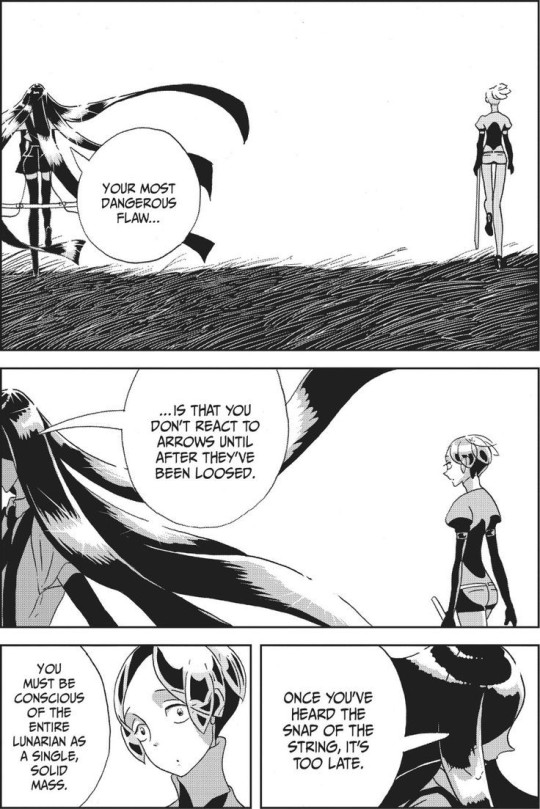
THEY LOOK SO SAD IN THIS PAGE... DID THEY LOSE SOMEONE TO THAT MISTAKE?? Omg... headcanons/theories incoming
What if the gem Bort lost was Heliodor? The timings match up seeing as how Dia said that "Bort is getting so strong lately."
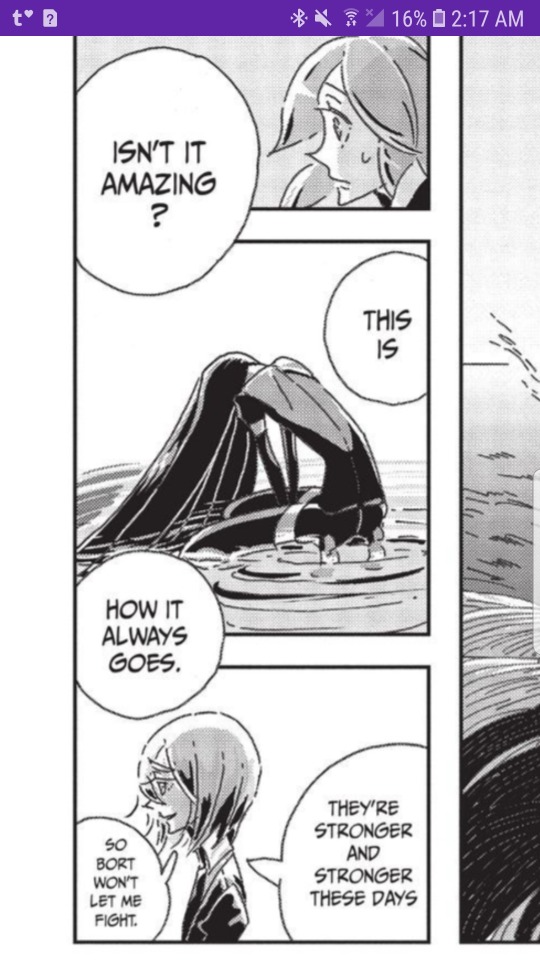
...Basically. implying this is a recent occurance. And you know who got caught recently?
Heliodor.

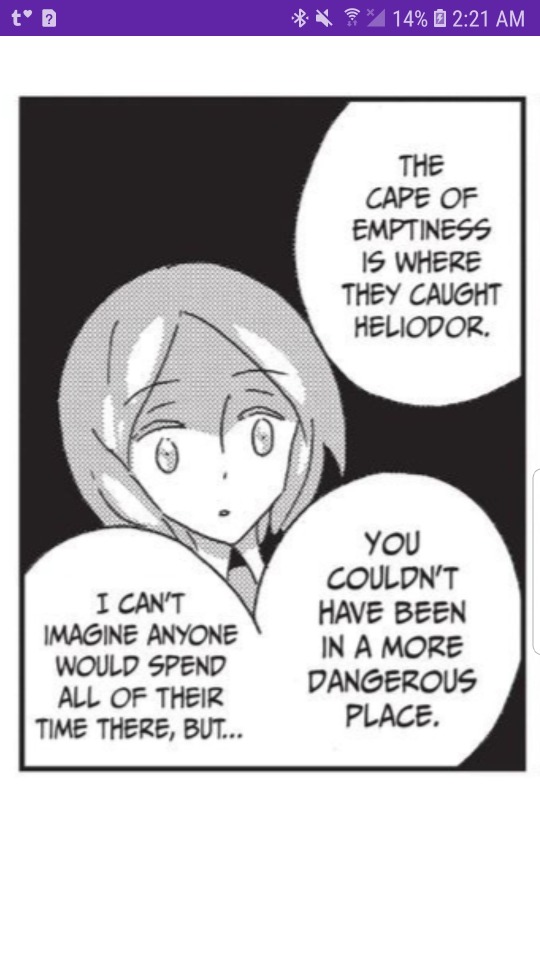
I'd also like to point out that Heliodor was captured at the cape of emptiness, aka where Cinnabar is staying. So its also an interesting detail to CinnaBort.
Ugh i need to see cocky Bort getting absolutely traumatized plz
#someone make a fanfic where Cinnabar still decides to stay at the cape of emptiness#but Bort is like “No” dont do that thats stupid#and then they fall in love#CinnaBort#Bort#Bortz#houseki no kuni#land of the lustrous#宝石の国#hnk manga#hnk#houseki#heliodor#cinnabar#houseki theory#houseki headcanon#houseki analysis#Cinnabortz
106 notes
·
View notes
Text
Land of The Lustrous: Looped Ending & The 28th Gem? [THREAD]
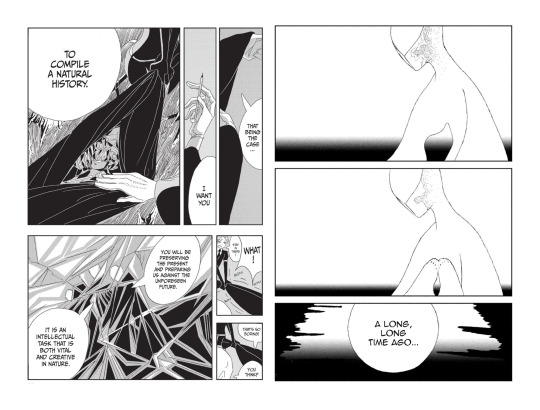
Ichikawa really hinting at that looped ending
— Volume 1 introduces how the gems strategize as duos — either as a fighter or a watcher. Phosphophyllite naturally wants to help fight like the rest against Lunarians, but Kongou disapproves of this request due to their clumsiness and low hardness.

— Phosphophyllite and Kongou are clearly antithetical — Phos, being 'perfect' within the imperfect body; and Kongou, the imperfection within perfection itself.

— Unlike the other Gems, Phosphophyllite has always opposed Sensei in light of curiosity and truth, although he fails to confess because of his functionality, it doesn't stop them from seeking out answers no matter what, even if its going to the Moon...

— But if Phosphophyllite is truly a fighter, then whom is the watcher? Someone that has been here the whole time... Kongou's Brother? Although it was stated that they have no traces of humanity in them, is it a safe theory to make that Kongou mistook it for a gem?

— These are memories, so let's believe the location of the city is relative to Phos and this is where Kongou's Brother misdirected the meteors. It's possible that the dormant remains of the box would still be within range of the original setting at the school.
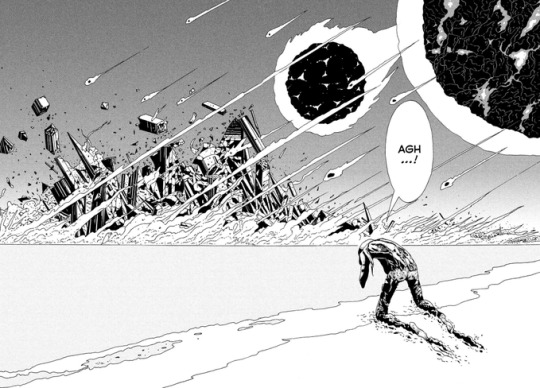
— If we assume they are made of the same material, then what actually separates the two? Is this Ayumu tinkering with herself? The fact that the "Lustorus-to-Lunarian" machine works with Kongou despite not being being a lustrous, but containing traces of Humanity interests me...

— With the relationship between Kongou and Aechmea still unknown, anything is on the table for the conclusion. The shared dialogue was incredibly suspicious during the 10,000 year wait and there has to be more history between them and Dr. Ayumu

— I'm sure it doesn't really matter anymore, but regardless of what the answer truly is, they both share an entertaining affinity with another 🍿
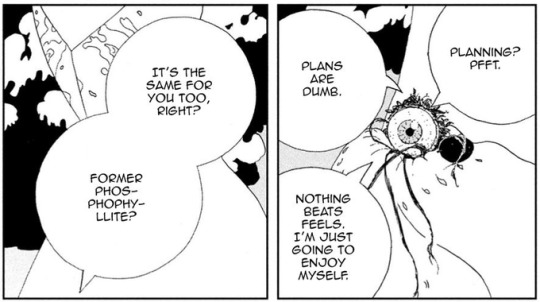
— END —
66 notes
·
View notes
Text
THE FINAL CHAPTER IS TITLED LAND OF THE LUSTROUS!
ABSOLUTE CINEMA MANGA!
#houseki no kuni#land of the lustrous#i am so emotional#hnk ended#it felt like a part of me ended too#well im the opinion that#no matter how good or satisfying#every ending has a bit of trauma#following phos journey was a rollercoaster#but im too tired to write a big analysis#so i just want to tell this#thank you haruko ichikawa
12 notes
·
View notes
Text
Dan Heng once Dan Feng once Yubie Honkai Star Rail 🤝 Phosphophylite "Phos" Houseki No Kuni
Ship of Theseus themes, Samsara themes, "How much of me is what I was made of and how much of me is my experiences", not really being the person you once were, Haunted by The Horrors™ of their existence, Memory Related Issues, several Buddhist themes attached to them.
I shall not elaborate at this time due to sleep deprivation.
#dan heng#phosphophylite#dan heng honkai star rail#houseki no kuni#hnk phos#One day I shall write the Dan Heng/Dan Feng analysis essay... One day... *brandishes quill*
21 notes
·
View notes
Text
Lunarians vs Lustrous - A look into Individualism and Collectivism in Houseki no Kuni
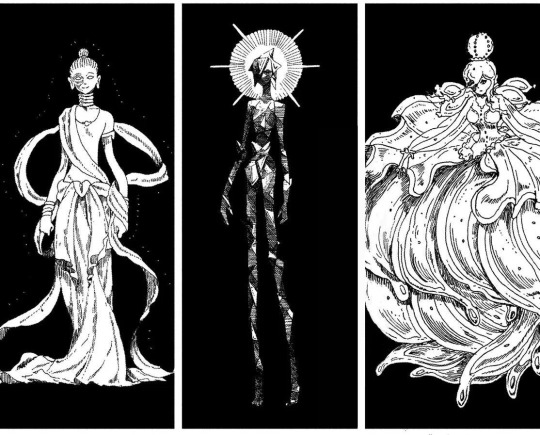
As I've mentioned before in my posts, these two races have a lot of parallels in regards to real life cultures and philosophies, and I'd like to examine what characterizes each of them more closely and how their portrayal and subsequent differences reflect the themes and messages of the manga.
The West and the East
There's many factors that cemented the difference between the individualistic collectivist cultures, but in essence, what separates them is what each of them valued according to their cultural and religious beliefs. Beyond looking at what caused that each side of the world turned to a different way of living (which in and of itself is massively simplifying it, because not the entire west is individualistic and viceversa, it's a lot more gray than that), it's important to understand what each philosophy entails.
It has to be said that this separation, through globalism and its subsequent capitalism, became blurrier and much more skewed towards the western way of doing things, in which eastern spirituality is just another commodity, but I'll talk more about it later.
By the way, my little analysis of the incredibly underdeveloped Admirabilis is that they basically aim to represent a culture under monarchy (because of their designs), but I don't think there's a lot more to extrapolate from that other than the fact that they represent the missing piece of how humanity can organize itself and its beliefs, I guess.
The Lustrous
I normally call them gems, but I guess their official name is the Lustrous, right? Well, whatever, maybe I'll use it interchangeably as I write.

The Lustrous are clearly a collectivist society, which are associated with Eastern cultures. Characterized by favoring community, which many times means the suppression and neglect of those who don't fit in it or those who aren't in it, it's clear that characters like Phos and Cinnabar are meant to be the misfits in a society like the one Kongo promoted. The arrangement at the start of the manga, in which everyone knows Cinnabar is suffering but no one does anything about it because it's more convienent that way is a perfect example of this.
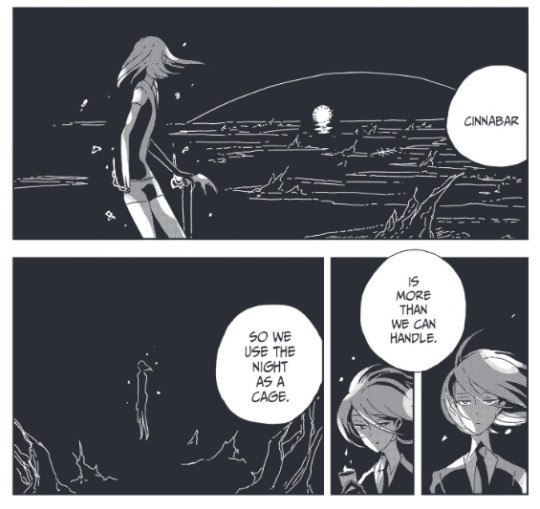
Even those who fit in and take pride in their usefulness (the value that reigns supreme in the gems' society) have to compete in that regard, as a collectivist society which values a specific trait will have a "supposed way of being" that isn't as tolerant of differences and different ways of expressing yourself and achieving success as an individualistic society would.
Just take a look at Dia and Bortz, the former who despite being at the top of the "usefulness hierarchy" still feels like she isn't enough because she has Bortz as a partner, or the latter who feels like she constantly has to live up to her reputation of being the strongest and actually feels relieved when others step up to cover for her. (Like when the Lunarians stop attacking.) Everyone is bottling things up and no one is doing anything about it because it's easier that way... except it obviously isn't.
Hell, even though I do agree that Phos' loneliness is self inflicted for the most part, it can't be ignored that the reason the gems alienated them so easily and quickly was also partly due to this collectivist mentality, in which the gems are "us" and everything else is "them*.

Phos further strayed from the "us" with each transformation, to the point that she is rejected understanding because of her differences with the rest, despite her seemingly good intentions. This black and white way of viewing people and beings in general results is dangerous, and can justify inhumane acts such as what Phos was made to bear during her prayer. And of course, the "architect" of this society is Kongo/Adamant, though I do understand the reasoning behind it.
The Mastermind

I'd say that Kongo overcorrected, and created a society that separated itself from the selfishness of humanity along with the earthly pleasures that he saw dominated the humans, to the point of the gems' worth becoming completely about how useful they were in their work and neglecting their emotions and the fun they could have in between along with ignoring the importance of their individual relationships (as opposed to just their cordial relationship to each other, out of being part of the same species).
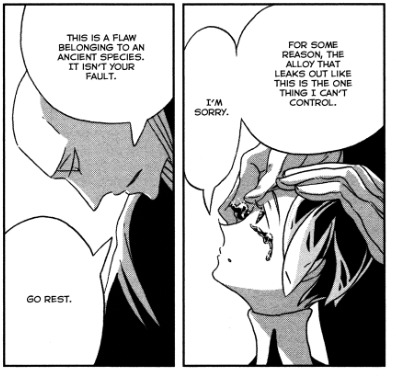
Kong actively discouraged feeling, discouraged crying for Phos—he discouraged humanity, with the good and the bad.
This has both pros and cons, because even though it keeps the gems together and allows them to effectively counter the threat that the lunarians pose, it also eaves them in a stagnant society, one in which they have to bear the risk of losing the people they care about while still being expected to keep their composure for the sake of each other and tradition.
It's a society that is afraid of change, because change is a stand out, and no one should stand out in a collectivist society—and yet, it's that same unchanging quality and resilience for the sake of each other that strengthens the bonds of the gems after Kongo reveals the truth to them. Their loyalty to Kongo and each other gives them meaning, and allows them to keep going year after year.

Whatever the case, that status quo is broken the moment Moon Phos enters the picture. And I'd say the main difference between her and the rest of the gems is her selfishness, the selfishness to see how far she can push herself and to discover what's out there. This is where we start to enter into individualism, with all the progress and independence usually attached to it, that many gems secretly admired, to the point of calling her their "hope".
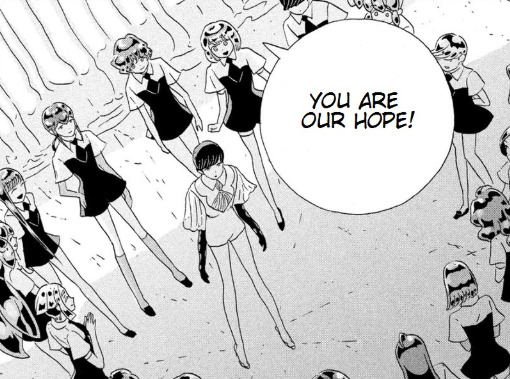
The reason we call the Phos with Lapis' head "Moon Phos" is because once she arrived to the moon, she assimilates with the Lunarians in a way—she's extremely compatible with their way of being and the optimization and research they constantly promote, but she also has the disadvantages that come with being like that, in how that obsession for optimization and rational planning keeps her mind away from those who are supposedly important to her, just being tools in her game and ultimately causing her downfall as she's broken by those whose trust she broke with too many mindgames and rationality. But in order to analyze this more in depth, let's take a look at individualism in general.
The Lunarians
Personally, I see individualism as a cult of of rationality and its subsequent optimization, in which the only logical conclusion of valuing independence and progress over everything is the commodification of any and all experiences and resources in order to sell them and increase your own gains. Everything is a tool, a means to an end, feeble feelings like love and community aren't as important as the american dream and the self made man. Individualism, and the economic version of it, capitalism, are systems that perpetuate the ideas they represent and instill them onto the mind of those born under them.
We can clearly see how Ichikawa meant for the Lunarians' extravagant lifestyle to be a complete contrast to the simpleness and community-focused society of the Lustrous.

They are literally a society expecting and wishing for their demise, too caught up in it to value what it is and keeping their minds busy with sensorial pleasures and progress—"what will be". They are much more technologically advanced than the gems due to this, which is good, of course, but it also comes with a cost.
And that's the magic of comparing these two cultures—each of them is incredibly flawed, and yet changing them also comes with losing something of value in the process. It shows the contrasting nature of certain philosophies and ideas and how the overreliance on them leads to black and white thinking and unhappiness, whether it is from suppressing yourself too much like the gems or not allowing yourself to compromise and live at all like the Lunarians.
Maybe, just maybe, instead of grand philosophies that apply to everyone and anyone, idealizing their principles and taking them as a gospel to live, it's better to just be, like Phos learns to do in the last arc.

Assimilation and Conquest
Remember what I said about how globalism blurried the line? I'd say the assimilation of the gems to Lunarian society, becoming Lunarians themselves, reflects this perfectly.

Now, they're allowed to be who they are, seek their own interests, indulge into the endless pleasures that were prepared for them and discover a whole new world in which love, food and entertainment are part of their day to day life. However, as great as it sounds, much is also lost through the assimilation—the gems' glitter is gone, and their care for each other isn't really touched upon.
The gems, upon first arriving on the moon, are made to wear new clothes, fancy and more feminine, they are shown the pleasures they can indulge in, and the possibility of keeping the culture and mantaining the positive aspects of their bond is neglected, almost ran over, in what is in essence a colonization.

Cairngorm is a clear example of this, and although she becomes happier by allowing herself to show her true colors (literally) and falling in love with Aechmea, there is this constant feeling that she strayed away from who she should have been, from her relationship with Phos, from her own wishes and interests… because she never discovered them.
She always lived for the sake of others, for Phos, for Lapis, for Ghost, and even if it is under the mask of a loving relationship, she repeats this pattern with Aechmea. Their relationship is all that is great and wrong with Lunarian culture, in which you are drunk with pleasure and forget your true self as a result. Why else do you think Cairngorm is continually portrayed as hyperfeminine and small, almost child-like, compared to the manipulative, dominating and masculine Aechma?
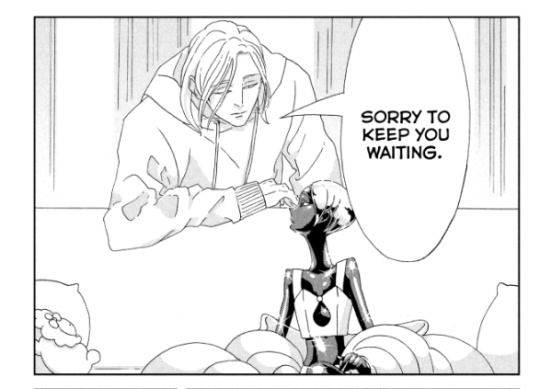
These labels are the ones that individualism and capitalism pushes in order to survive and keep the power dynamics that characterize it. They are images and illusions of what "should be", of masculinity and femininity that the characters fool themselves into wanting in order to continue with the "blinding-youself-with-pleasure" charade.
There's a foreboding sense that Cairngorm—no, that the Lustrous, have lost their purpose and are trying to distract themselves from their inevitable demise through the eartly pleasures that the Lunarian society offers. There's a reason why the album of photos starring the gems living on the moon is called "Party of the End"—because that's what the life of the Lustrous on the moon is.
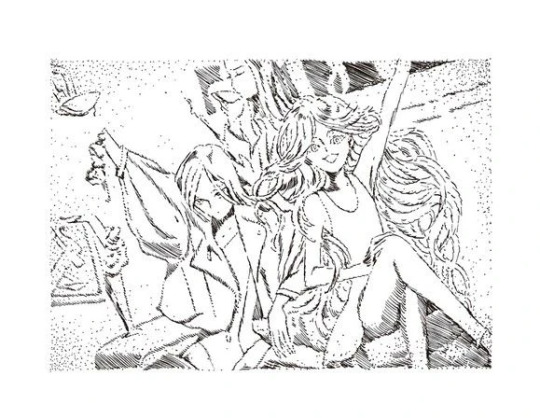
A party, which involves overindulgence on sensorial pleasures, that is done in order to create an instance away facing their own mortality and having to reflect upon their actions. A celebration that precedes the end, in which they become nothingness and yet they also become something else without ever having come to terms with who they were, like Phos does.
We are all the Same
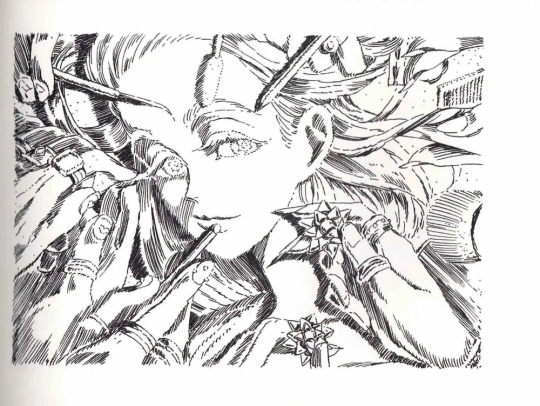
With all of that in mind, I believe that rather than choosing to ally with a certain philosophy, religion, or culture, Houseki no Kuni shows unabashedly the ugliness that each possibility holds, the selfishness and selflessness of humans, and how those traits manifest differently depending on the ideas and principles that surround you. It's a story that blurries the lines between a selfish collectivism and a selfless individualism, between the organic and inorganic, between what is us and what is something else (Phos), and it arrives at the conclusion that it's all ultimately meaningless in the face of a simple happiness—that binarisms are misleading and in truth, even cultures as different as the Lustrous and the Lunarians have as much in common as they have differences, especially in their selfishness. It's an examination of humanity and the way it deals with each other and itself.
#houseki no kuni#land of the lustrous#phosphophyllite#moon phos#hnk phos#hnk#hnk meta#phos#lotl#hnk manga#hnk analysis#lunarians#lustrous#individualism#collectivism#culture#hnkkathmeta
79 notes
·
View notes
Text
Houseki no Kuni Chapter 106 Thoughts: Bon Voyage...
Hello all. I hope these last few months have been kind to you in some way. These months have been... a lot. Some very good things happened, and some very bad. I wish we lived in a world were tragedies were just fiction, but that sadly isn't the case. I won't elaborate, but I promise, I'm okay. I just hope 2024 improves, though I know for many others, just hoping isn't enough.
I'm sorry for this late post. Once again, real life had me so distracted that I honestly forgot about Houseki no Kuni's chapter coming out this month. I only remembered when I saw activity around my older HnK posts.
Well, I finished reading the chapter and it was very beautiful and sad in different ways. I'll share more of my thoughts, though I don't think it'll be as long or detailed as my previous ones to be honest... Though I could be wrong! We'll see how it fairs. And who knows? Maybe I'll make another post to dissect this chapter further. But for now, I'll just write whatever comes to mind and try to make it as coherent as possible. I hope you like it. And as always, please feel free to share your own thoughts!
Here we go!
Thunderous Spectacle: The Final Journey
Once again, Ms. Haruko Ichikawa decided to flex her art skills by making beautiful, bombastic illustrations that encapsulates the chaos that is happening on Earth. And the ship departing looks straight out of a sci-fi movie; my mind went to Star Trek when I first saw those pages. Maybe Dune would be more appropriate; I actually don't know, I haven't read or watched Dune, though I hear it's very good.
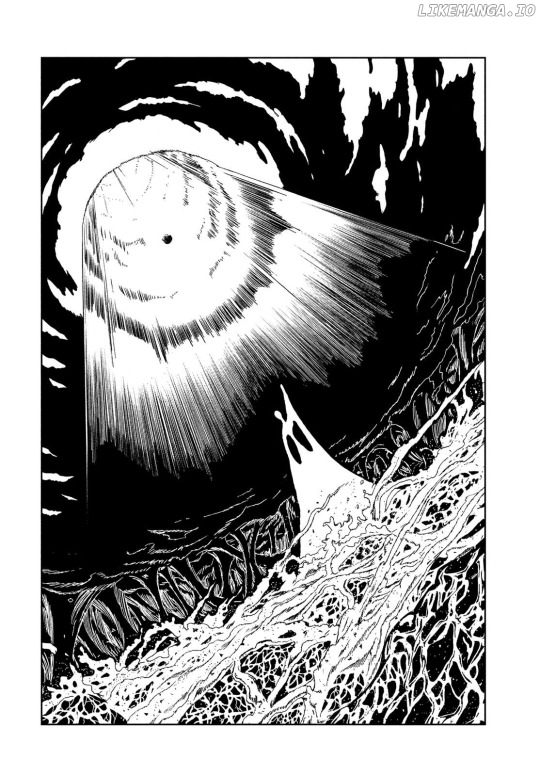
I wish I had more to say about the visuals for this chapter, but I think they speak for themselves. I will say though...It's moments like this when I marvel... this was originally about a silly gem child trying to find their place in the world. And this is how their journey is finally coming to an end. Almost nothing is recognizable. This certainly was not how I thought this story, or specifically Phos' story, was going to unfold. I wonder if this was Haruko Ichikawa's plan from the beginning? Who can say...
Speaking of plans... Let's talk about Phos's and Eyeball's conversation.
Manipulation or Consideration: Humanity's Parting "Gift"
That was an interesting conversation Eyeball and Phos had when they were finishing up putting the little pebbles onto the ship. I think I remember stating in the last post how I thought it was odd that the Lunarians had this ship prepared for Phos. I'm glad this was somewhat addressed, but the conversation reveals that there was more behind this literal Deus ex Machina ship.
(I will never stop calling it that)
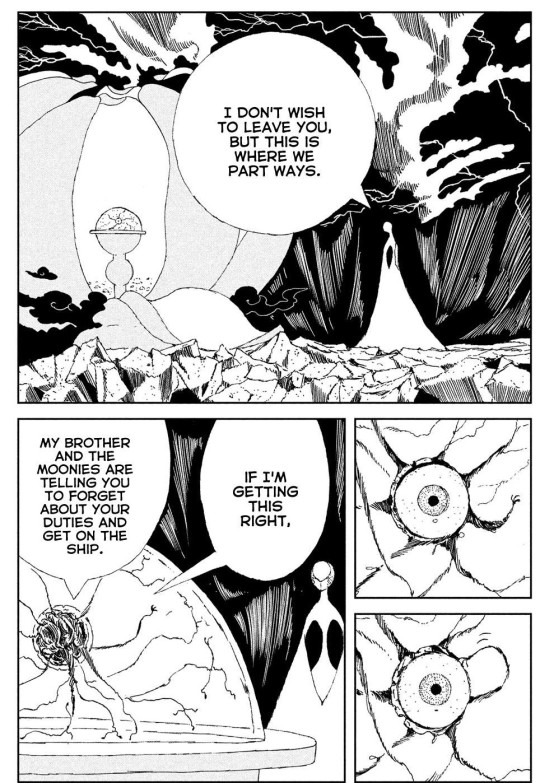
So if I'm understanding Eyeball's logic, Adamant and the Lunarians were considering Phos in the end? That after Phos fulfilled their last duties to the remnants of humanity that they'd be given the chance to leave the planet with whatever species came about before the planet died- Oh. Wait.
Wait.
Was this the thing that Adamant and Aechmea were alluding to back in chapter 96???
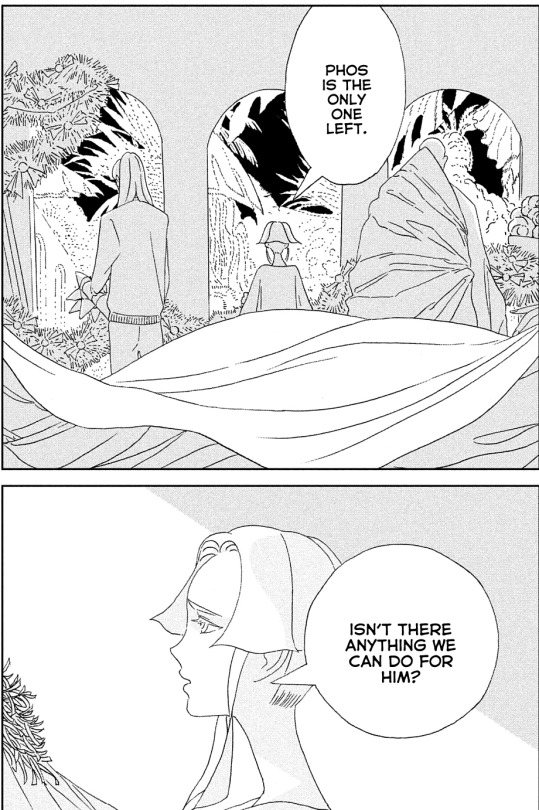
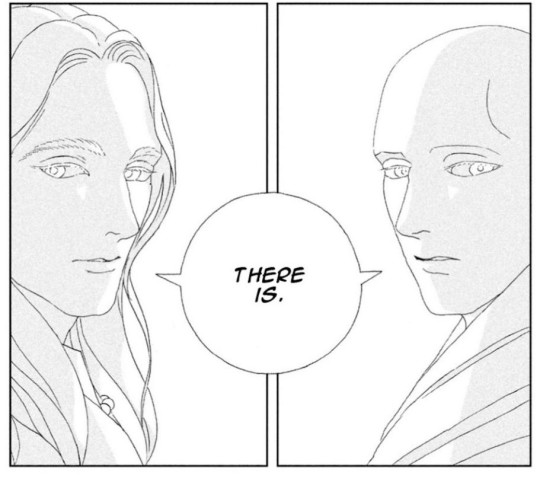
Oh my goodness, I think it was.
As I was typing this and going over some of the saved pages I had from the previous chapters, I saw the one with Euclase and I suddenly remembered their weird conversation with Adamant and Aechmea. I also remembered wondering what the heck they meant in the later chapters since their plan for Phos seemed to only be self serving.
HUH.
( Please let me know if I'm way off! For all I know, I could be making stuff up, but oh my goodness, when I made that connection AAaahh)
This was not how this portion was originally going to go, but there you go. I was going to talk about how twisted but not surprising how calculated everything was from the the Lunarians and the other ruminants of humanity's end. And I was also going to mention how the Doctor also fit into this since she was also calculated and manipulative in her own ways. Despite the different forms it takes, humanity didn't seem to change much in this world...
I was also going to originally say that the Deus ex machina ship feels like a backhanded "gift" for Phos, especially after everything that happened to them. And though I still feel that way, after thinking back to chapter 96, I'm now starting to see Phos's perspective of this gift. That despite everything that they put them through, Phos's former families still left this parting gift for them so they could live on elsewhere after they are long gone and when Phos was free from their duties. It's still a backhanded gift in my opinion, but it showed that they cared... at least a bit.
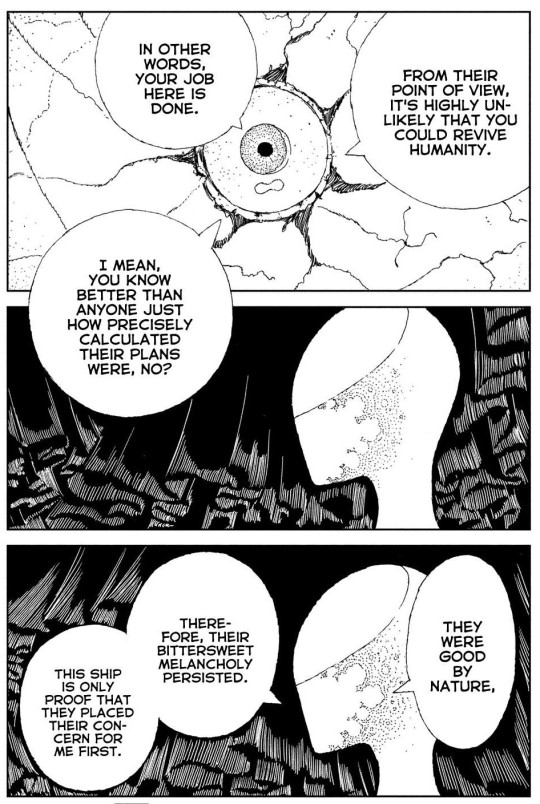
And the fact that their plan also included Eyeball is just wow. I do not blame his small, comedic outburst for that realization. He was manipulated too from the getgo!
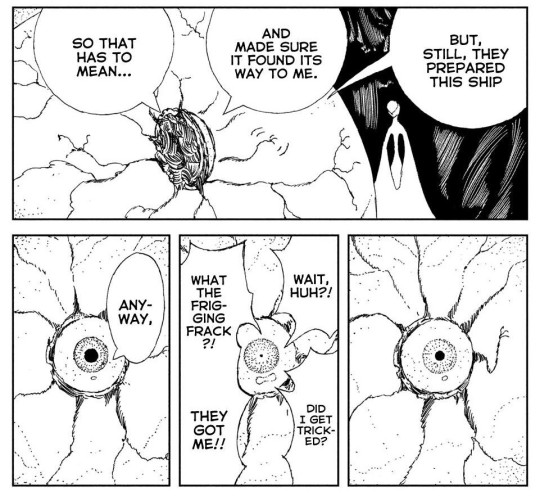
At least in the end, Phos chose not to go into the ship. Phos intended to burn that bridge. Even though this thought was implanted by Sensei, Adamant, and the Lunarians, Phos still made that choice on their own and they are owning it. It's bittersweet, though, because regardless of whether or not they stayed or went, Phos's decisions were still a result of them being manipulated one way or another. Pretty much a lose-lose kind of situation, but at least the choice that Phos chose in the end still aligned with what they wanted in they end.

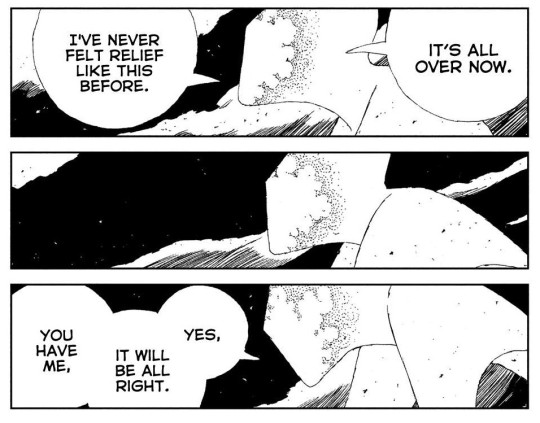
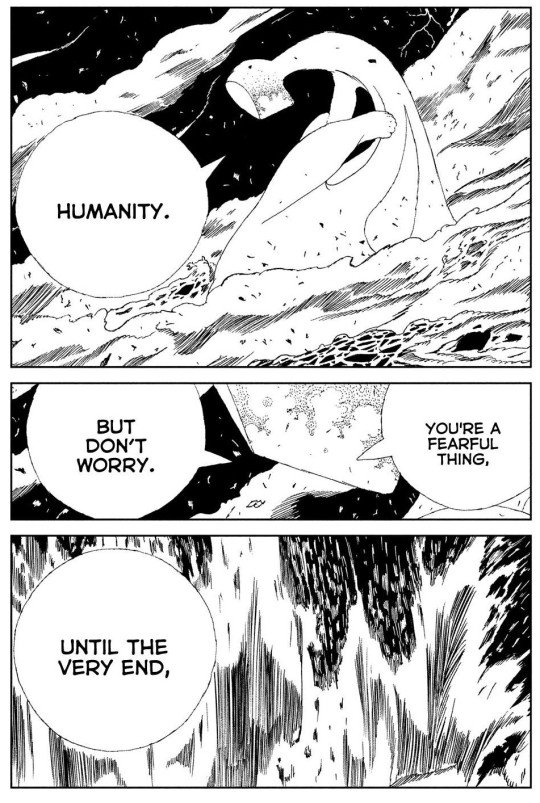

They are giving Eyeball and the little pebbles a chance for a fresh start while Phos can finally end the cycle... By taking humanity and himself to bitter end...
Or does he?
Goodnight, Phosphophyllite
The final farewell between Phos and Eyeball was touching. In a last minute decision to give Phos closure and in an act of true salvation, Eyeball took the last piece of Phos with him. The true remaining piece of Phosphophyllite. To me, this action felt more earnest and heartwarming than the Deus Ex Machina Ship (but that's just me).
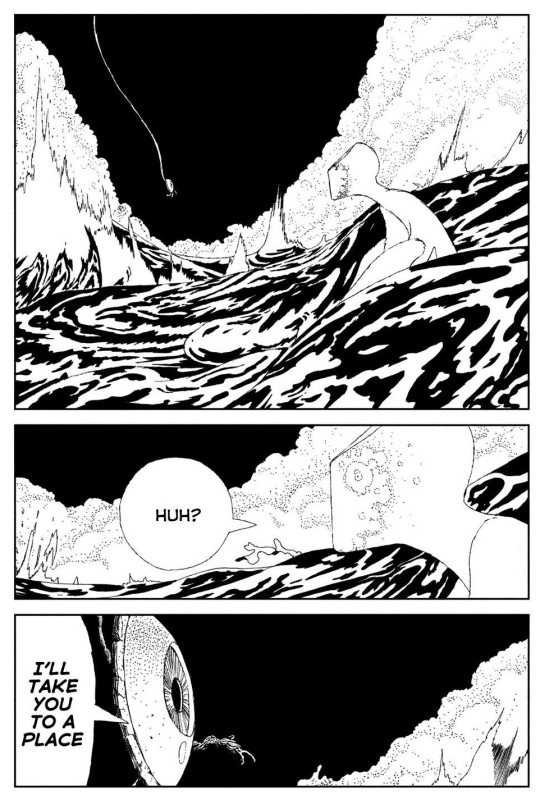
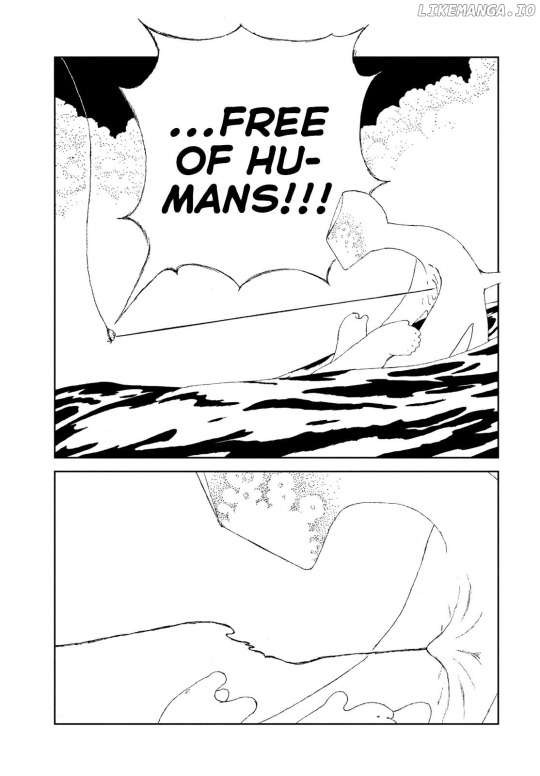
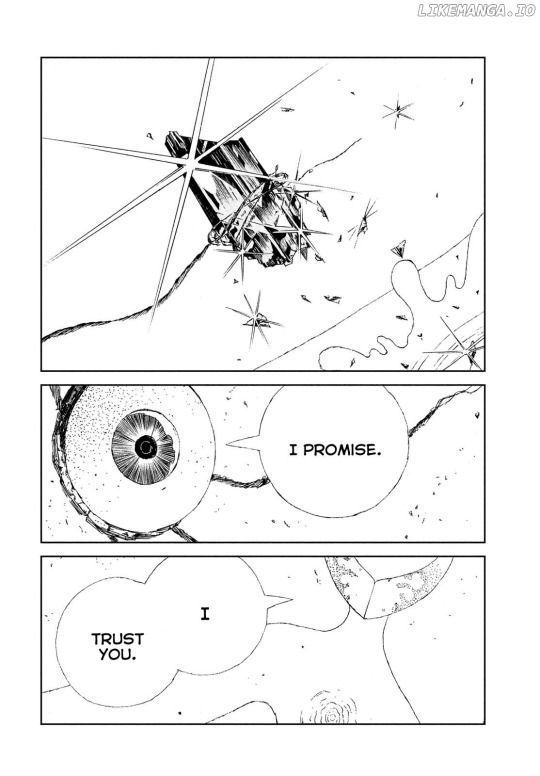
What will happen with that piece of Phosphophyllite? Who knows? Maybe that piece will gain sentience and live a peaceful life with the pebbles? A life free of all the constraints as well as the freedoms that was intentionally and unintentionally reinforced within societies created by the former remnants of humanity? I suppose we'll have to wait and see.
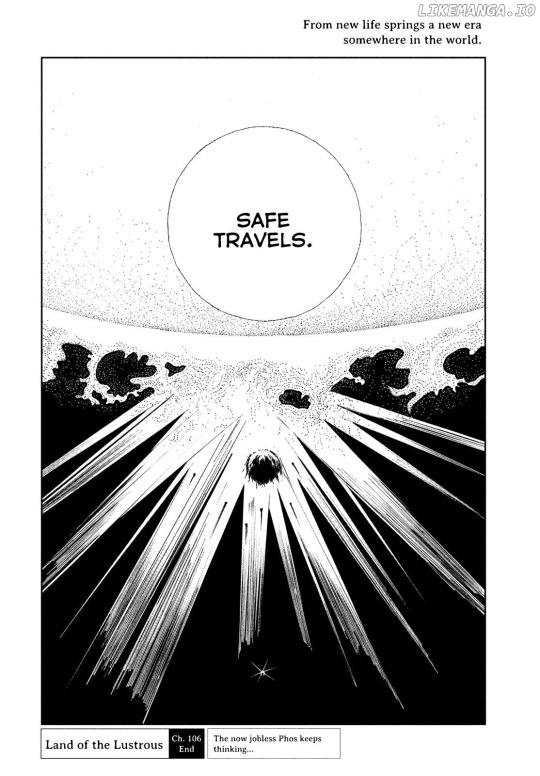
As for the Phos that was left behind? The Phos that we've watch evolve from the beginning to end? They will finally rest.
They will finally, and truly be free.
(Albeit in a seemingly not so pleasant way?? Well, they weren't complaining so maybe the lava and other harsh elements isn't hurting them. I hope that's the case.)
I had the feeling that this chapter will be the last time we see Phos, or at least this version of Phos, and it would be a sad but proper send off.
But after seeing THIS at the end, I'm not so sure:

Of course Haruko Ichikawa decides to be cheeky with that little note. Ma'am. Why did you say this???
Is this her roundabout way of saying that Phos is kind of back to square 1? Of being the lonely, jobless Phos who no longer has a purpose and is left with nothing to do but "think." That's pretty funny/messed up joke if that's what she's hinting at.
But again, we'll have to wait and see.
WELP. That's all I have for you all. I hope you enjoyed my ramblings and I'd love to hear what you thought about this chapter. We're nearly at the end of this saga. We're are almost there...
Please be worth it.
#houseki no kuni#land of the lustrous#hnk#lotl#hnk spoiler#hnk spoilers#hnk manga#lotl spoilers#hnk meta#hnk phos#personal thoughts#hnk chapter 106#hnk chapter 96#hnk analysis#story analysis#long post#meta post
44 notes
·
View notes
Text
I finished reading the HNK manga and watching the anime a while ago but I still have the notes on many chapters without much context, so...I thought that some people may wanna read 'em? This will contain spoilers for the entire series.
I think that the main message is : Be careful what you wish for and be grateful for what you have.
Something I'm upset with is the Fu...A...N? bit getting lost in translation. Yk, when Phos strangles the tsukijin, accidentally blocking their airways? And then Phos is in the library, thinking about what the tsukijin said and Ghost scares them? "fuan" means "anxiety/uneasiness/apprehension" etc. and I think that moment has a unique feel to it that also helps cement Ghost's character.
CH39
Phos' gold expands in their head and explodes because of the trauma caused by the Antarc incident.
Cairngorm understands Phos' situation with the gold arms because they themselves have lived beneath Ghost Quartz's skin. Phos' gold, just like how Cairngorm has lived, has a mind of their own.
And it's likely the arms that acted up and called Cairngorm "Antarc".
When beneath Ghost's surface, Cairngorm did something as reckless as trying to get caught by the tsukijin because of Lapis being taken away, similarly to what Phos did because of Antarc
CH42
THE TSUKIJIN LEARNED TO CHUCK BITS AND PIECES OF GEMS AS WEAPONS BECAUSE OF THE TIME WHEN SENSEI DID
CH43
THE FORESHADOWING
F U M I N G .
CH45
Whenever the alloy kept expanding and contracting, Phos would crack and chip away because their memories were affected by the trauma.
CH46
Guess who's gonna go to the moon...(it is Phosphophyllite)
CH47
Lapis looks kinda evil
CH58
Phos is going to feed every gem the information said gem wants/needs little by little. They are going to maintain the original personality in order to attract no suspicion.
CH59
You're gonna hate that love because you don't understand it??
CH67
Is the prince offering false freedom?
Also, having your old self eat away at you, making you unable to progress is a beautiful message.
Cairngorm would've been more hostile towards Phos if it weren't for Ghost's influence. Cairngorm was like that in the beginning because they had more control over themselves, likely due to the strong emotions caused by Ghost being taken away.
CH71
Cinnabar decomposes into Hg and S at a minimum of 235°C. That means that either the Earth's atmospheric temperature is as high as that, or Cinnabar's internal body temperature is. And that's how they create that "poison" floating around them, which is definitely mercury. Or maybe they can make it float, like Phos can control the alloy that makes up their arms?
Phos may be more fortunate than Cinnabar, yet the latter appreciates themselves enough to not be eternally greedy and obsessed with changing themselves.
+Cairngorm new fit kinda looks like a chess piece maybe
CH72
Teetering at the edge between two extremes, Phos can't fit in anywhere.
CH75
The way that they're forcing gender norms on a genderless gem makes me feel uncomfortable on a deep level.
CH76
People go along with Phos out of convenience and because their ideas slightly align, not because they care about the gem. However, the gems on Earth care about both Euc and Kongō, hence why they happily stick around
CH78
I don't think anyone who's on the moon reeally misses Phos...
CH79
NIGHTMARE FUEL.
Phos lost "Phos", so of course "Phos" was not memorable to the other gems after a long time has passed. Also, what a Frankenstein. Get boxed.
Phos must tired because of the lack of sunlight.
So now they want Kongō's light? After rejecting it??
CH80
The Lustrous may be pure and kind in all they do and are, just like the prince is saying. Going by that logic, Phos has always had good intentions but has been a mess since from start to finish.
CH99
Phos resembles a sea angel to me...which is kinda interesting, since they both hail from the sea. Phos also looks like a combination between the 3 races that derived from humans and none of them at the same time.
Some extra things I want to add:
After CH99 I kinda just started binge-reading everything that was left and I was too impressed by everything that was happening to actually have any thoughts about it. I just felt at peace reading it, somehow.
Anyway, a nice touch that the ending had was Phos disintegrating, essentially "peeling" every layer off and returning to their original state...I got very emotional.
Also, I hate Aechmea with a burning passion. At first I thought they were this evil guy but in the end they were relatively harmless but GROSS AF. I had to force myself to get through all the chapters when they were interacting with Cairngorm because I FELT UNCOMFORTABLE ON SO MANY LEVELS.
Regardless, thank you for reading if you did 🫶
4 notes
·
View notes
Text
i frankly find it sad that for many years i just watched whatever is mainstream without really ever getting truly interested and making little effort to actually find stuff that matched my tastes
#happened with me and shounen (guess that's why gntm was such a relief) like hxh... even at the time i didn't like it much#it wasn't unbearable but i hated the storytelling and the non-animated manga arc was actually so uncompelling#and i was 14 with little real analysis skills so. lmao.#i was fascinated by hnk even at the tender age of 12 i shouldve gone in the direction of stuff closer to that a bit earlier#nonsense
0 notes
Text
Sabo's fighting style analysis!! :D
Idk if this was done before or not, but I wanted to take some notes on Sabo's fighting style: I think it's really interesting, fun and rather unique!
Let's get the obvious out of the way first - he's very strong, agile and fast. That’s a given. He breaks metal and bones with his bare hands. His speed(both physical and of reaction) is something I especially want to commend – because it was emphasised a couple of times in the story! First in Dressrosa colosseum, as he was able to act against fighting fish and Burgess’ attack, and second, intercepting Burgess’s attempt to kill Luffy quite literally in a second!
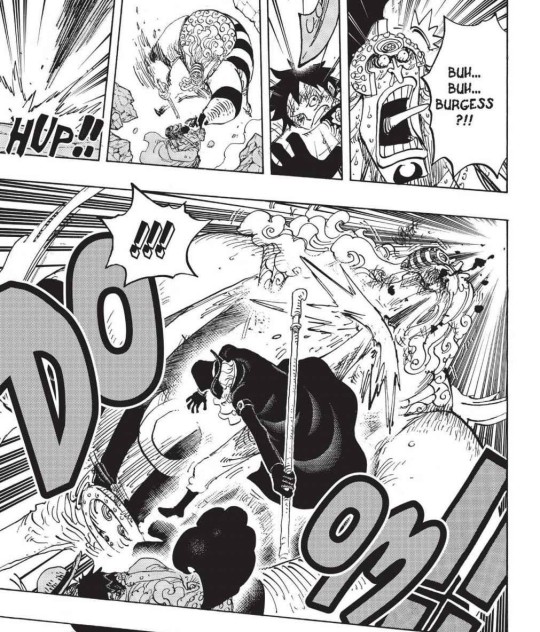
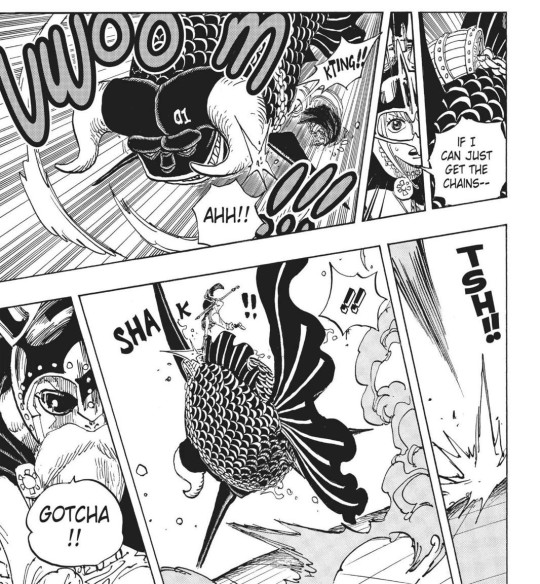
Similar thing happened in the Reverie flashback: in an instant he evaded the guards. We don’t even see the jump itself – he notices the guards and in the next panel he’s already up on the rafter!(? Idk if thats the word) Not to mention, in that little time he managed to pick up Bonney as well!
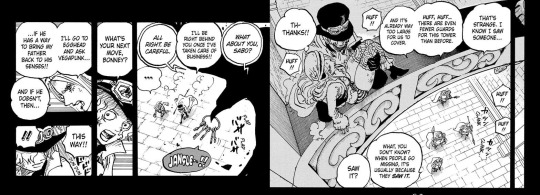
Now, while I did say that he’s strong, he doesn’t usually rely solely on his strength to defeat his opponents. The first time we see him fight is the most fun one. The colosseum! Because in that fight he used a clever strategy - if you noticed he was actually directing Burgess’ attacks to destabilise the arena’s foundation and take advantage of it when targeting the colosseum’s core! Like - if you’ve seen hnk you should remember how Antarc broke down the glaciers - they first set weak points in the ice before dealing the final blow! (doesn’t only apply to fictional glaciers but I’ve seen a man ‘cut’ a solid piece of rock this way but I couldn’t find a video to show as an example😔) (no major spoilers in the video! only like. antarc's existence?)
youtube
He then used the broken arena to win the mera-mera no mi by a technicality! He didn't need to win by rules btw! The whole thing would be demolished anyway! He just decided to be witty and show off! He’s so silly, you can tell he is having a lot of fun. Literally being :D the whole time.
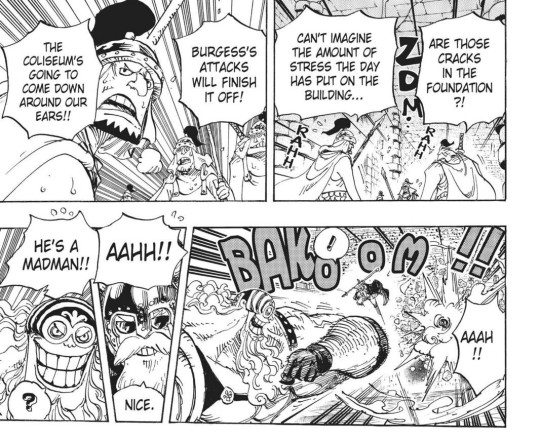
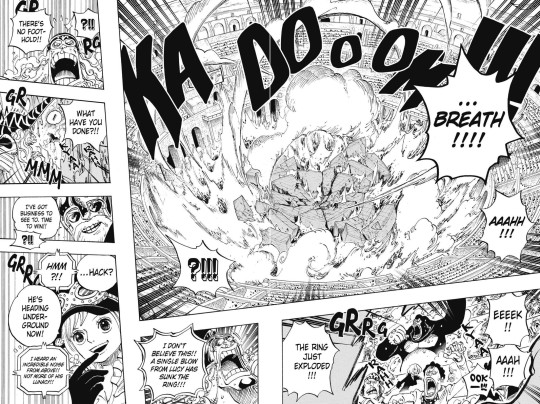
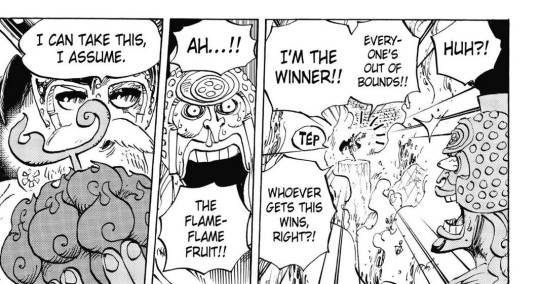
And using strategy and weak points in battle is the whole point of ‘finding a core’! His primary thing, that he even wanted to teach Robin ^^ And while even in childhood he was more level-headed and thoughtful in fights than, say, Ace, he’s still rather brash and daring. So it could very well come from his strategic and rational mentor - Dragon!
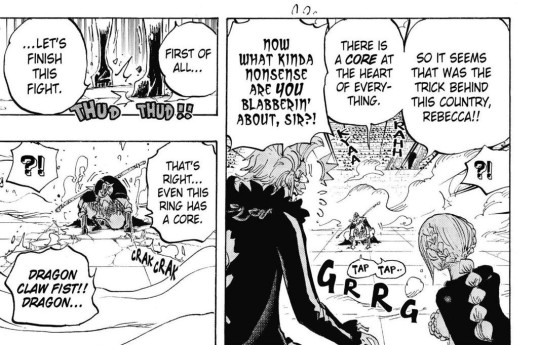
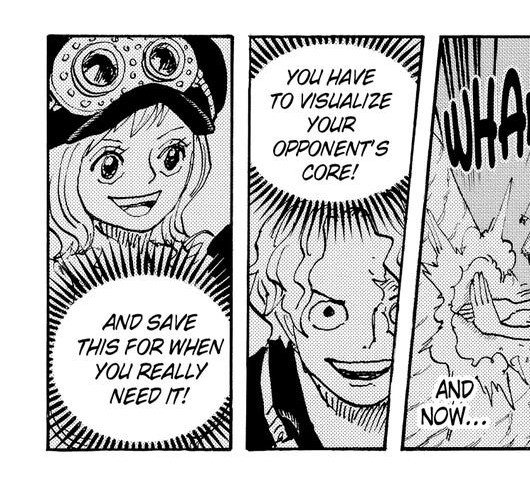
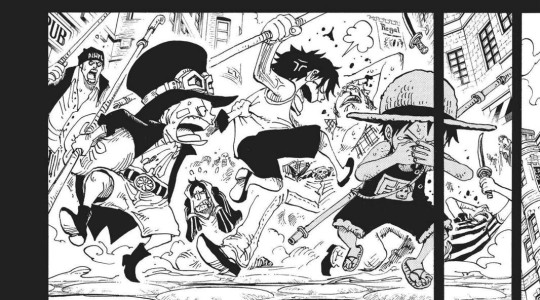
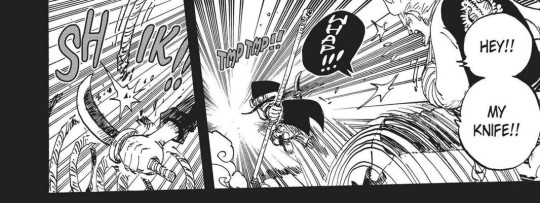
Ooh and look at him stealing that knife! And while that was to cut Luffy's ropes, in adulthood he often targets people's weapons first! That actually seems to be the RA’s signature - rather than overpowering their opponents with violence, they help and encourage regular people to stand up for themselves. Another reflection of Dragon’s disdain for war and likely also Kuma’s pacifism! The same way none of the captains use ‘normal’ weapons or conventional fighting methods, sometimes even preferring support roles. Hehe, you can see how the army and Dragon influenced Sabo’s character even through the fighting style! (actually, there’s a bit more about pacifism, but for now please just believe me that babo isn’t really allowed to kill)
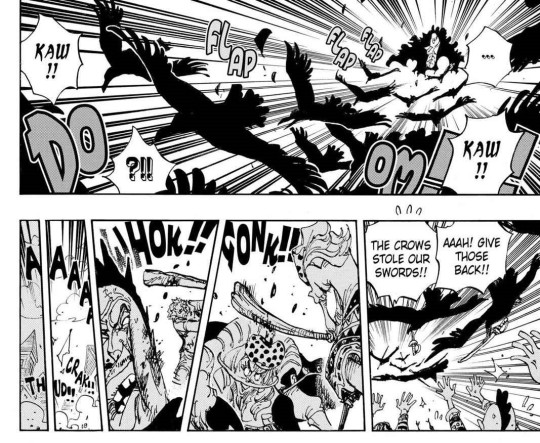


But also Sabo doesn’t just get rid of their weapons in the fight with the marines, he uses the gun against the marine! The same way he takes advantage of Burgess attacks to destroy the colosseum. He uses these things to indirectly cause harm to his opponents! A roundabout way to bypass his mentors' pacifism "I didn't hurt them, they brought it upon themselves 🙄".
Also fun fact - Sabo’s dragon claw functions kinda similarly to Cipher Pol’s finger gun - they focus all the strength in singular points instead of spreading it on a wider surface. I vaguely remember this from a physics class - it may seem silly but it kinda does make sense?
And another thing which… may or may not be true depending on the interpretation. As I said, both his mentors are pacifists, and as someone who literally grew up surrounded by the RA’s values, I think Sabo actually doesn’t kill people.
Well, first of all, the main point of evidence - he originally intended to let Burgess go. The man whose actions led to Ace’s death. The man who tried to kill Luffy in front of Sabo. And yet Sabo lets him go and leaves with a smile. (Before Burgess intentionally riles him up, and Sabo loses his temper which he tends to do when his loved ones are involved. And that guy still survived didn’t he?)

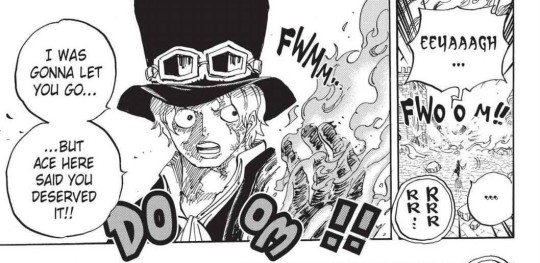
Secondly, the Revs were so mortified at the news of Sabo killing king Kobra that it made it seem like it was the news of him dying again. Even with king Kobra being the good monarch that he was, the reaction seems too drastic for someone who has a history with killing people on impulse/driven by emotions/for fun.
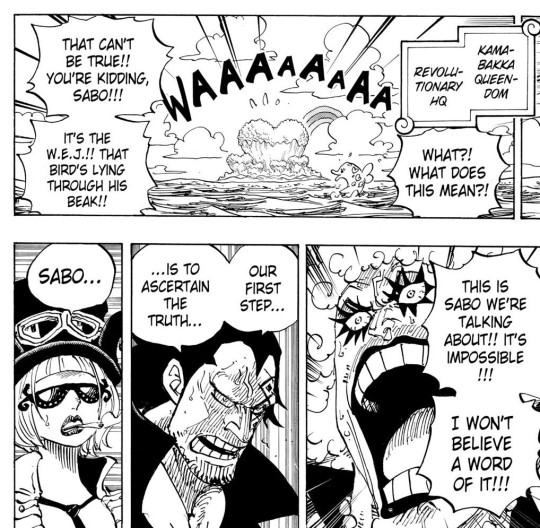
And thirdly, he prefers to threaten people instead. In the sense he wants to appear threatening to his opponents. He tells Bastille that he can crush skulls easily without directly saying that it’d be his skull (well. Could depend on the translation) And after Fujitora’s meteor wiped out the marines he decided to aurafarm in front of the admiral with Bastille’s mask, even though it wasn't even him who actually defeated the guy.

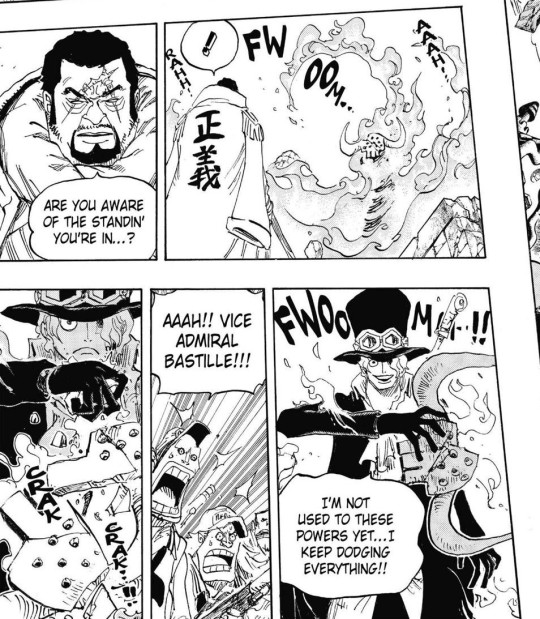
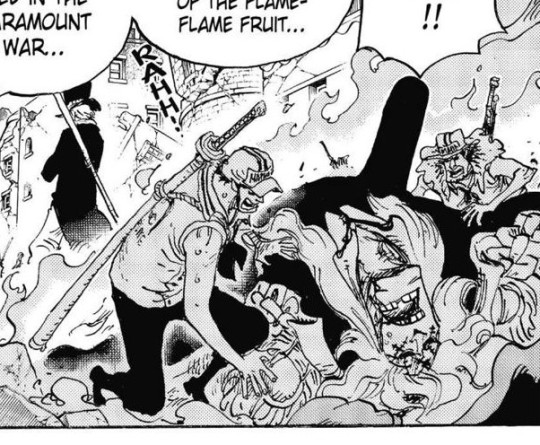
He is really similar to Usopp in that regard - but Sabo actually has the strength to go through with his threats. And while he certainly enjoys enacting violence and frightening opponents, he tries to not take lives. He tries to be a bigger person (which may or may not be a part of his willingness to become a symbol for the revolution, he tries to push many ‘unnecessary’ or ‘unsightly’ things down)
Notably, the two times when he faces his opponents head on is with Fujitora and the second fight with Burgess. Both times included stalling the other side
To conclude this part, we can see that what he lacks in raw strength Sabo compensates with wits, agility and observation skills - he targets weak points and takes advantage of the environment. But his fighting style also has some flaws: mainly is that he mostly has single-target attacks, and the only one which allows him to affect/impact a large group of people is heavily dependent on the battle ground and can be used only once in the same area.
And now to his mera-mera no mi abilities. In short: they suck- cough couhg I mean they could use some work, compared to Ace’s.
You can see that he’s really inexperienced with his devil fruit. In Dressrosa he’s only getting used to it, be it attacking or turning into fire. He mostly uses fire fist as his main offensive skill, but he does try experimenting - with… questionable results? Burning dragon fist flame dragon king tries to combine fire fist and dragon claw, the things he has on hand, probably the first things that came to his mind.

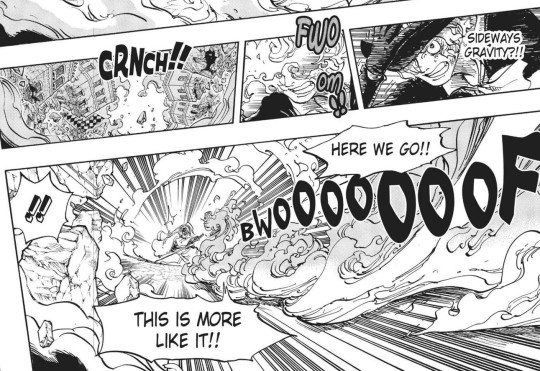

And while we see him practicing on the Baltigo, the next time he didn’t really improve or came up with any fun attacks. ’Rook check’ is really just a ‘fire fist’ with a fancy name so Sabo could be witty and show off his understanding of chess and strategy in front of the most important people in the world.

But all jokes aside, the mera-mera no mi complements his existing fighting style nicely, in where he lacks range and power his fire powers fill in. You know, the way Ace and Sabo would’ve covered each other’s blind spots and weaknesses. And I think that Ace is the very reason that someone, as intelligent, creative and strong as Sabo, didn’t make much progress with devil fruit abilities. Mera-mera no mi is not just a weapon, but also the only connection Sabo has left to his brother. And if Ace had freedom to explore his fire abilities and be as flexible with them as he wanted, Sabo needs to overcome his grief first before he could see the mera-mera as an extension of himself, not just a memento from his late brother which he just barely deserves to use. The reason Sabo uses ‘fire fist’ so much is because it’s the only ability he knows for certain Ace had - it is in his very moniker.
All in all, I hope this analysis helped you get a better look at Sabo! And one more thing - Oda, please please please let him out to fight more he needs enrichment (and I need more material on him to dissect)
#also btw I'm open to comments and critiques#I may be stupid#one piece#sabo#one piece sabo#karyss' rambling#op meta#this analysis marinated in my head for /moths/ which is why I wrote it in one evening#I was procrastinating
333 notes
·
View notes